Natural Sciences
75th Graduation Ceremony: CoNAS Presents Best Performing Student in the Sciences
Published
1 year agoon
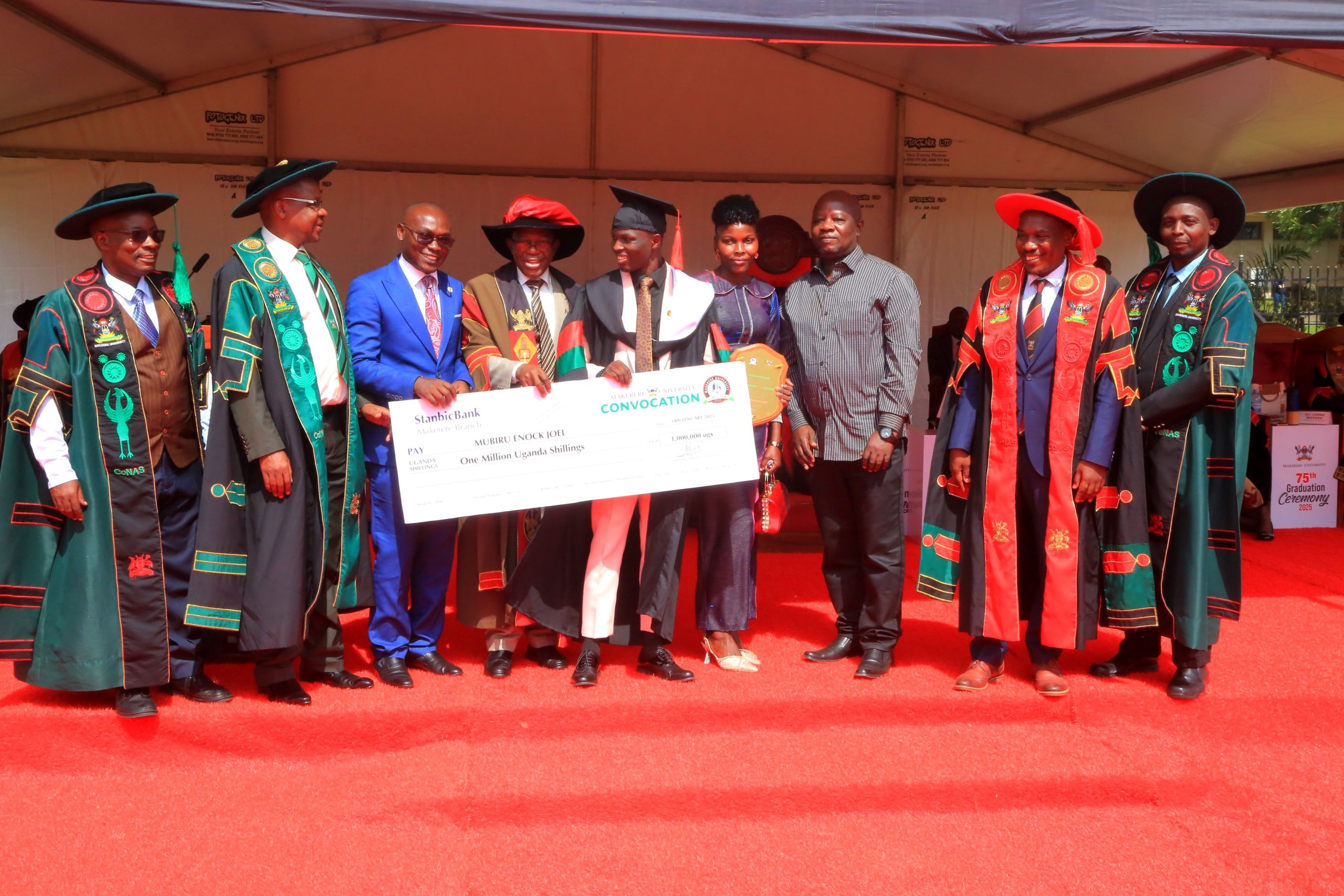
Makerere University Convocation has honored Mubiru Enock Joel with an award in recognition of his outstanding academic performance. Mubiru, who graduated with a Bachelor of Science in Mathematics and Physics, scored a CGPA of 4.91, making him the best student in the sciences at Makerere University this year. The award, which included a plaque and a cheque of UGX1 million, was presented to him by the Chair of the Convocation on January 14, 2025, the second day of the 75th graduation ceremony.

Overall, the College of Natural Sciences (CoNAS) presented 310 students for the award of degrees of Makerere University at the 75th graduation ceremony. Of these, 14 graduated with PhD (5 female 9 male), 36 MSc (10 female and 26 male) and 260 BSc (113 female and 147 male).
In the course of the 75th graduation ceremony that started on 13th January and will end on 17th January 2025, a total of 13,662 graduands will receive degrees and diplomas of Makerere University.
Of these, 143 will graduate with PhDs, 1,813 with Masters degrees, 11,454 with Bachelor’s degrees and 243 with postgraduate diplomas. 53 % of the graduands are female and 47% are male. 44% of the PhD graduands are female. A total of 491 graduands will receive first class degrees. 16% of the students will be graduating with post-graduate degrees and diplomas.
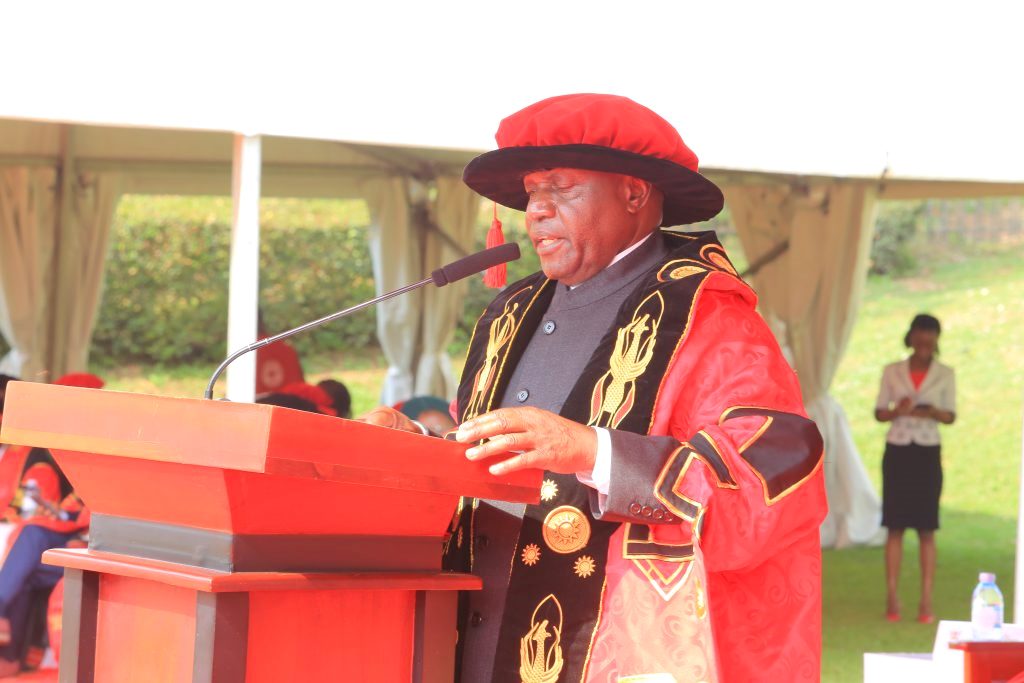
Chancellor’s Address
In his address, Makerere University Chancellor Dr. Chrispus Kiyonga congratulated the graduands on their success and expressed appreciation for the support provided by the lecturers, administrators, parents, and guardians. He emphasized that the success of the university is a collective effort, appreciating the faculty and University Council for their critical roles in delivering quality education.
Dr. Kiyonga also extended his gratitude to the President of Uganda, H.E. Yoweri Kaguta Tibuhaburwa Museveni, and the NRM government for their invaluable financial support to Makerere University. The Government has so far allocated UGX30 billion to Makerere University through the Research and Innovations Fund (Mak-RIF).
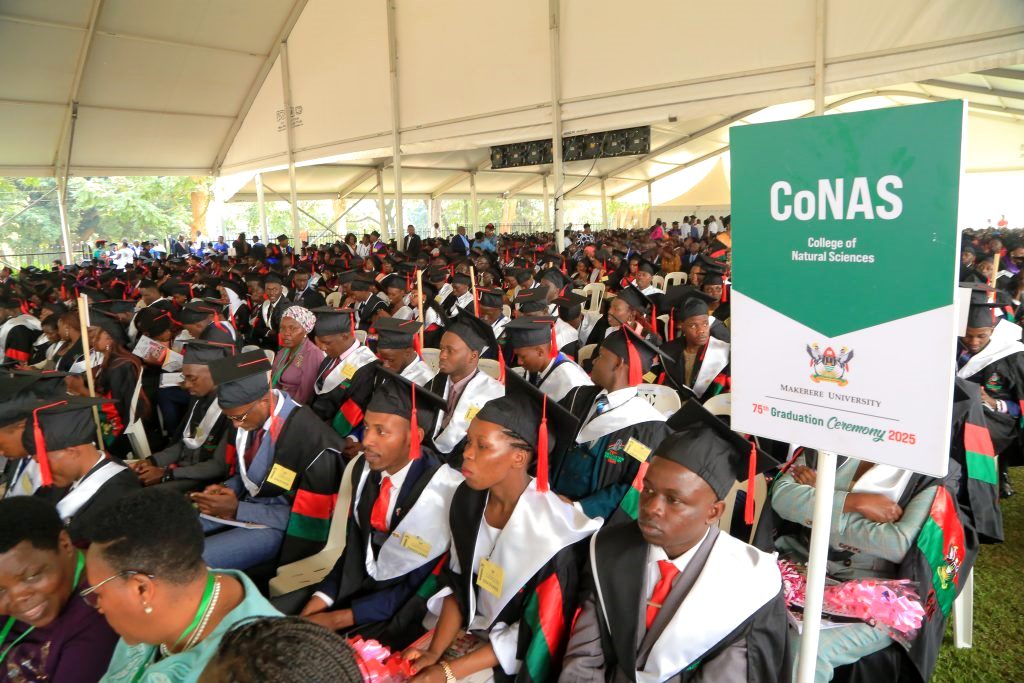
Looking to the future, Dr. Kiyonga encouraged the University to increase its outreach programmes, particularly in the agricultural sector. He proposed collaborations with medium- to large-scale farmers, where students could gain hands-on experience while also assisting farmers in local communities. He also advocated for stronger partnerships with the private sector to support the commercialization of innovations emerging from Makerere University.
Furthermore, the Chancellor highlighted the President’s directive to teach Political Economy to all university students. He stressed the importance of transforming Africa through the strategic utilization of its resources and emphasized the value of political economy knowledge in this process.
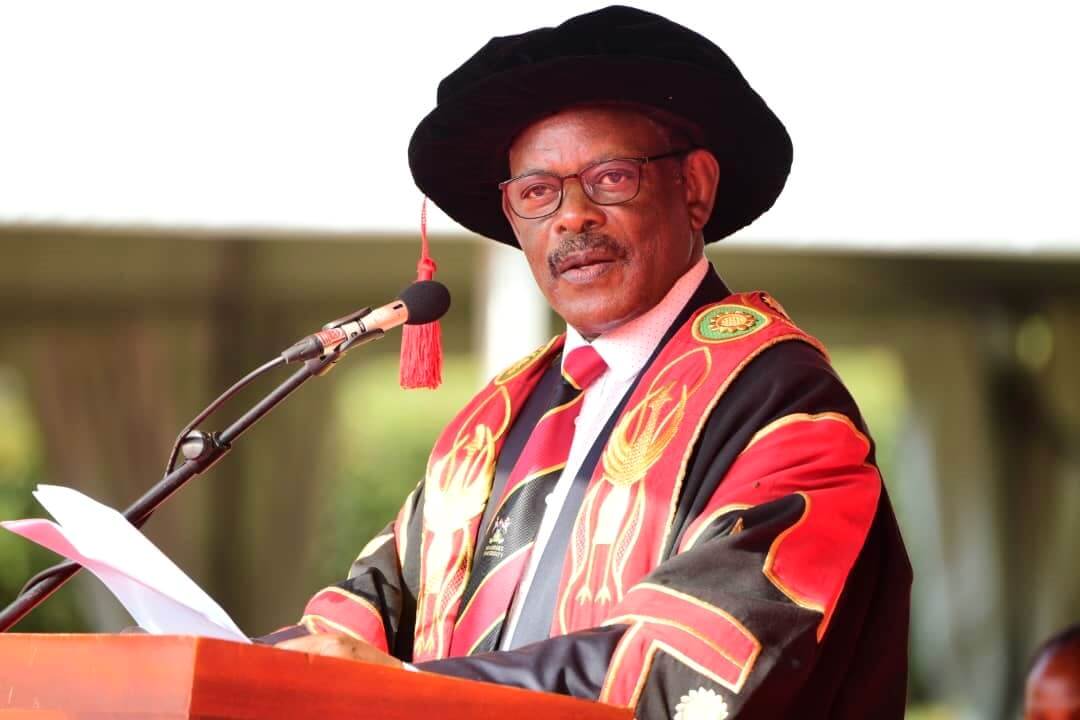
Vice Chancellor’s Address
In his remarks, Makerere University Vice Chancellor, Prof. Barnabas Nawangwe congratulated the graduands and expressed deep appreciation for the unwavering commitment of the teaching staff, administrators, parents, and guardians. He also welcomed the Chancellor, Dr. Chrispus Kiyonga, emphasizing that his vast experience would be an asset to the institution.
Prof. Nawangwe acknowledged the College of Natural Sciences for providing foundational training for all the other science-based disciplines at the University. He also commended the College for its ground-breaking research and contribution to the development of mathematics in the region. “The College of Natural Sciences is unique because it handles all the foundation disciplines for all the other science-based disciplines. But apart from the basic sciences, the College provides training and conducts research in critical applied science disciplines, including geology and petroleum studies, industrial chemistry, and others. The College is central in the development of mathematics in the East and Central Africa region and it has also taken the initiative to investigate the problem of poor performance in biology by secondary school students,” the Vice Chancellor noted.
He encouraged the graduands to seize every opportunity and to consider starting their own enterprises, using the knowledge and skills they have acquired during their studies. “Do not despair if you cannot find employment. Instead, reflect on the immense opportunities around you and consider entrepreneurship as a path to success,” he urged.
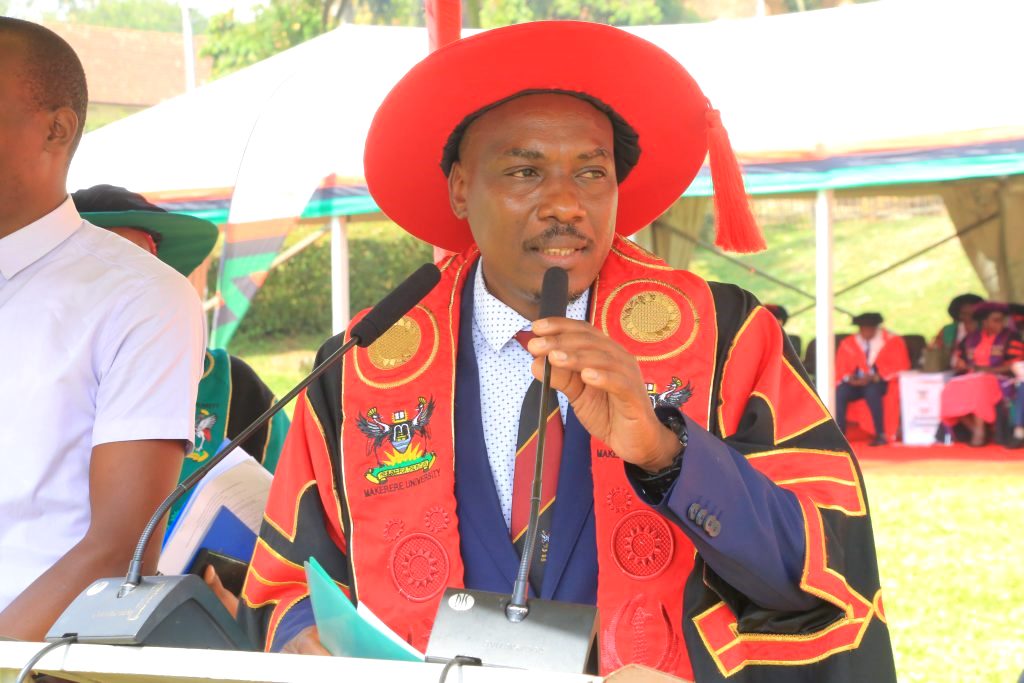
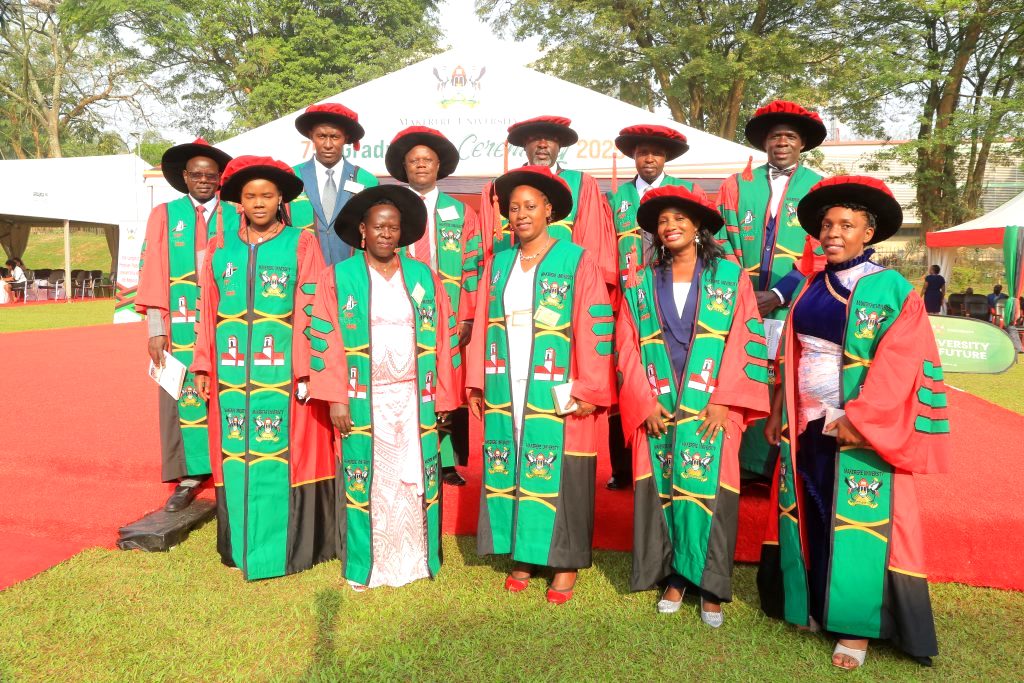
Message from the Minister of Education and Sports
On behalf of the First Lady and Minister of Education and Sports, Hon. Janet Kataaha Museveni, the Minister of State for Primary Education, Hon. Dr. Joyce Moriku Kaducu, congratulated the graduates and thanked the university for its commitment to excellence in education and research. She emphasized the transformative power of higher education and praised Makerere University for its contribution to the nation’s development.
She also expressed gratitude to the parents and guardians, acknowledging their critical role in the success of the students. “Your support has played an integral part in making this achievement possible,” she said.
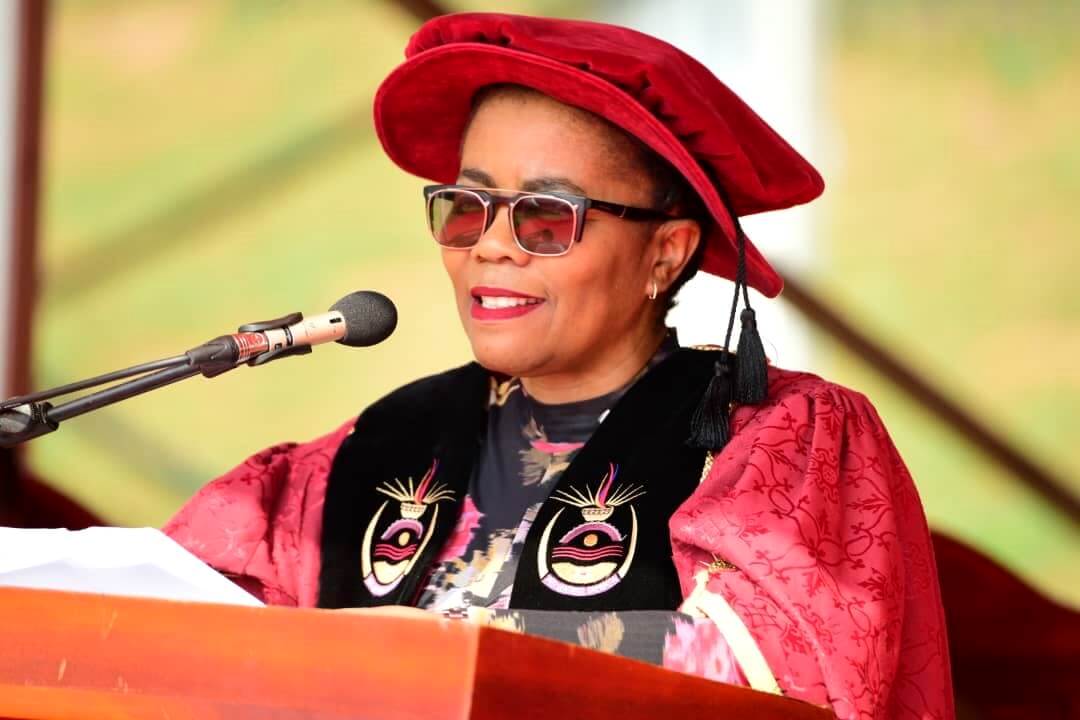
Commencement lecture by Prof. Puleng LenkaBula
In her commencement lecture, Prof. Puleng LenkaBula, Vice Chancellor of the University of South Africa, expressed gratitude for the support that Makerere University and Uganda provided in the fight against apartheid. She encouraged the graduands to use the knowledge acquired to address the continent’s challenges, particularly in the transformation of Africa and the empowerment of women. Prof. LenkaBula called for greater collaboration among African intellectuals to create a better future for the continent, particularly through research that directly benefits communities.
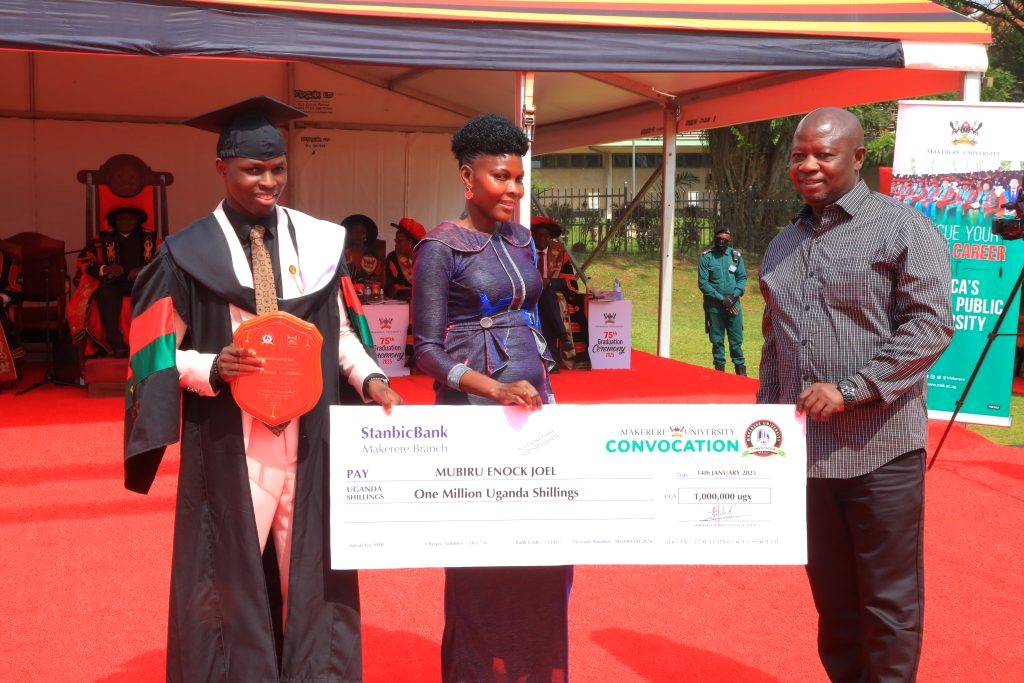
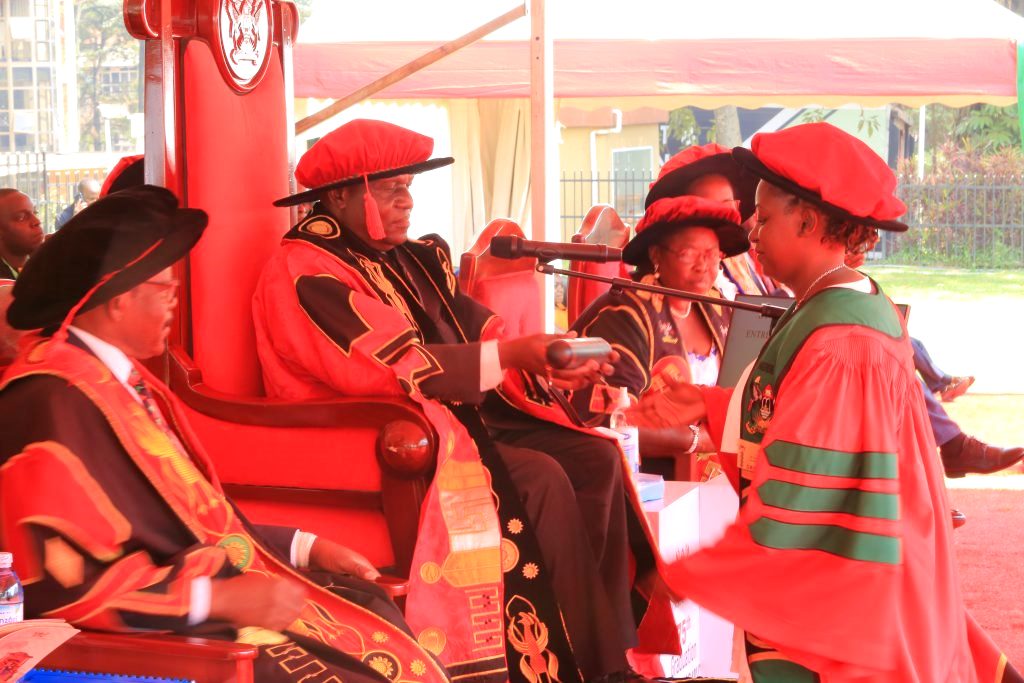
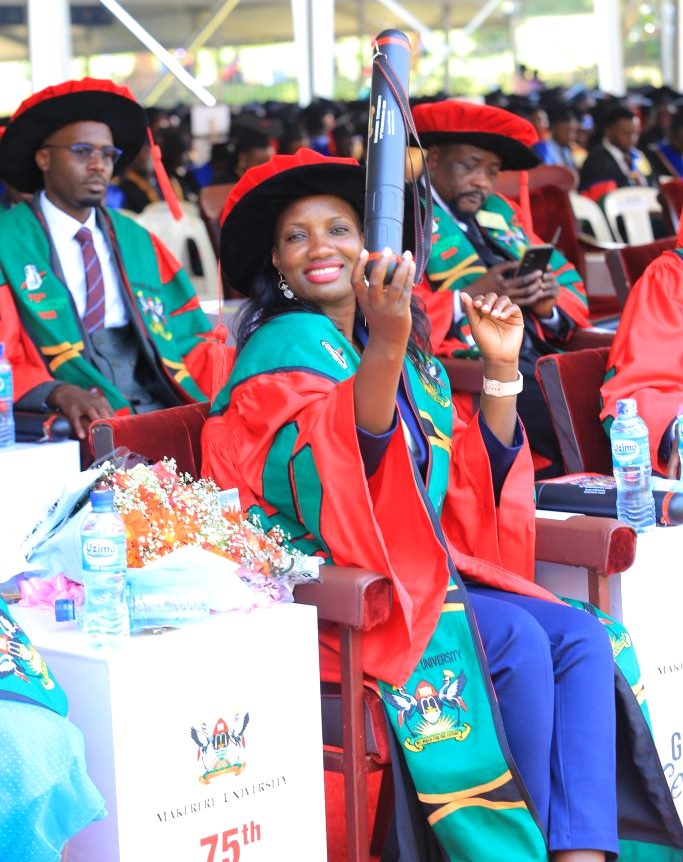
Research Excellence and Teacher Recognition
At the ceremony, Makerere University recognized outstanding researchers and educators from CoNAS. The Senior Researcher Award was presented to Assoc. Prof. Juma Kasozi (Department of Mathematics), Assoc. Prof. Charles Masembe (Department of Zoology, Entomology and Fisheries Sciences), and Dr. Jamilu Ssenku (Department of Plant Sciences, Microbiology and Biotechnology). The Mid-Career Researcher Award went to Dr. Julius Mulindwa (Department of Biochemistry), Dr. Patience Tugume (Department of Plant Sciences, Microbiology and Biotechnology), and Dr. Patrick Ssebugere (Department of Chemistry), while Dr. Omara Timothy (Department of Chemistry), Dr. Mukiibi Ssewannyaga Ivan (Department of Geology and Petroleum Studies), and Dr. Sadik Mustafa Abubakar (Department of Plant Sciences, Microbiology and Biotechnology) were recognized as the best Early Career Researchers. In addition, Prof. Ann Akol (Department of Zoology, Entomology and Fisheries Sciences), Dr. Sadik Mustafa Abubakar, and Dr. Kalega Peggy (Department of Geology and Petroleum Studies) were honoured as the best teachers of the year from CoNAS.
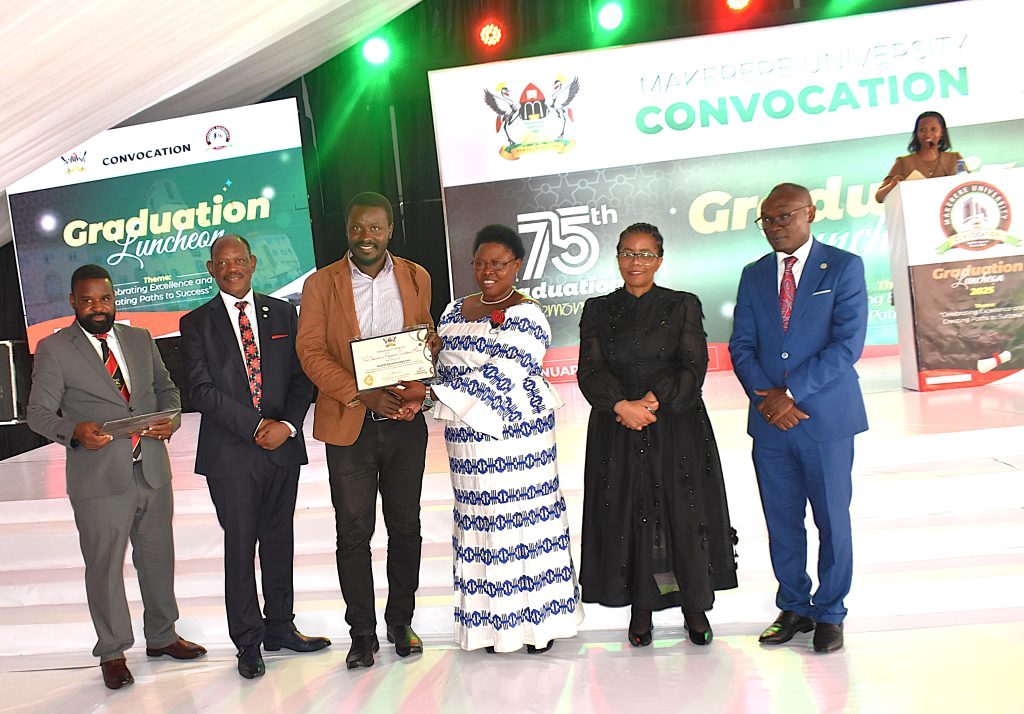
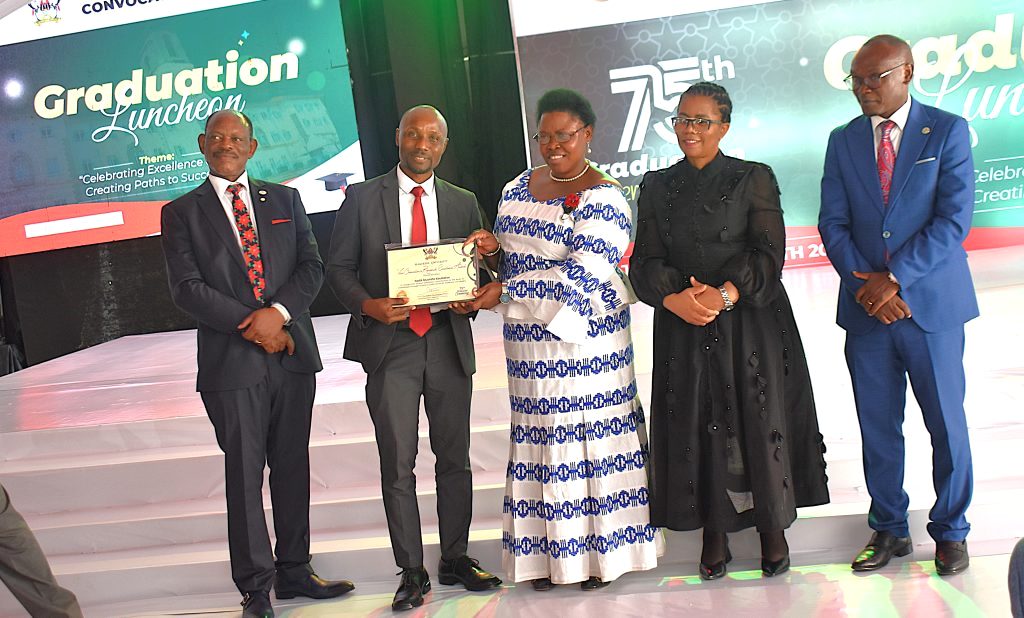
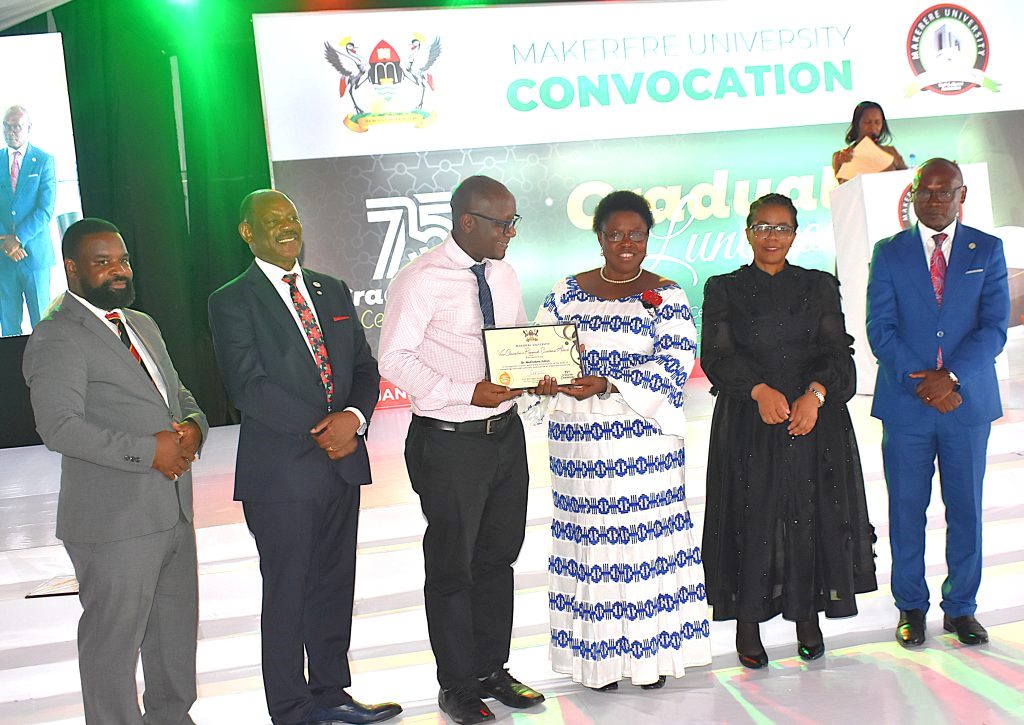
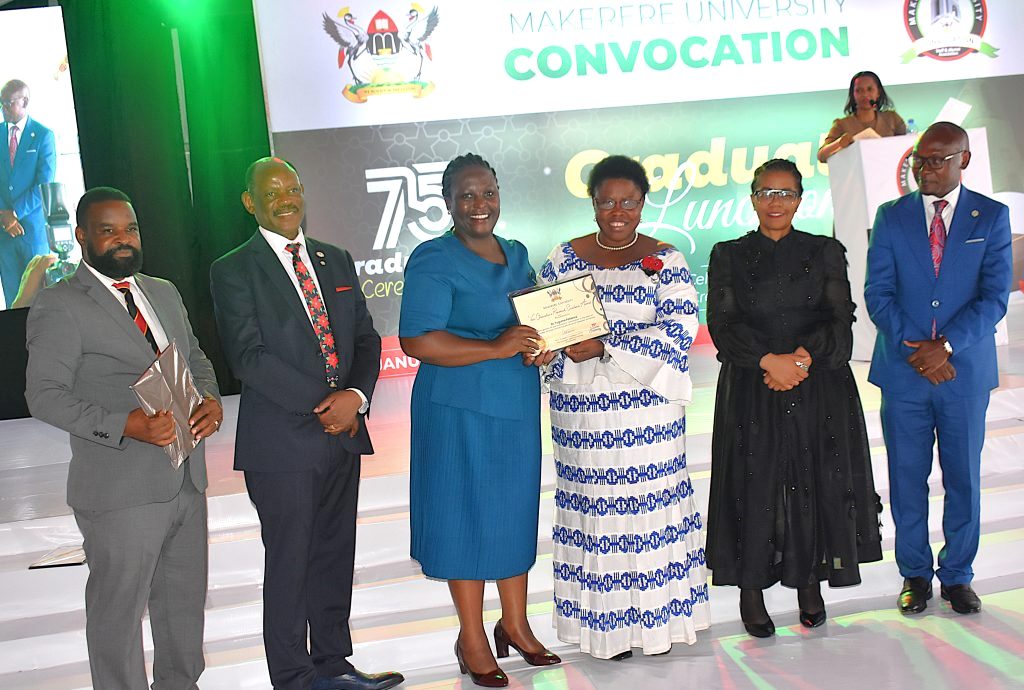
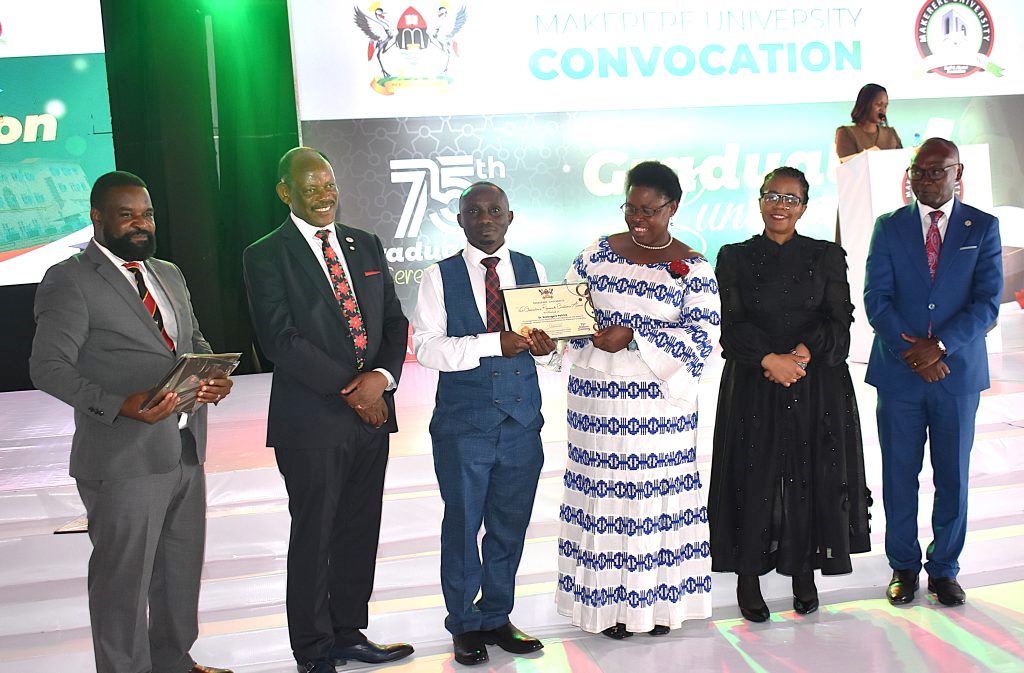
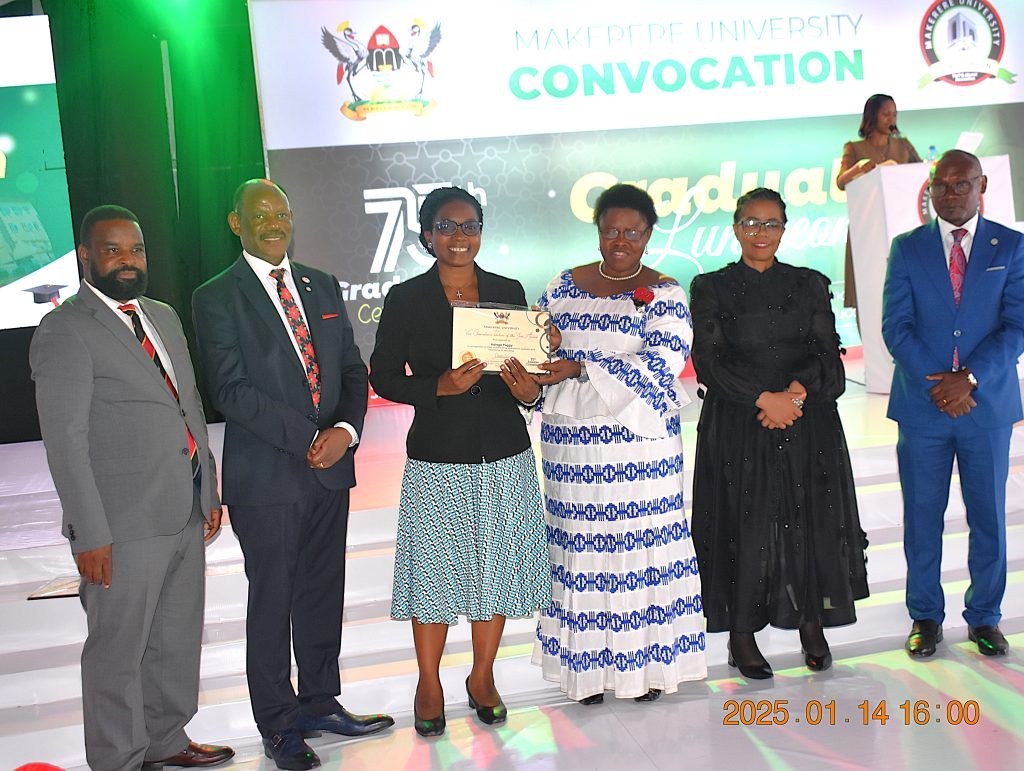
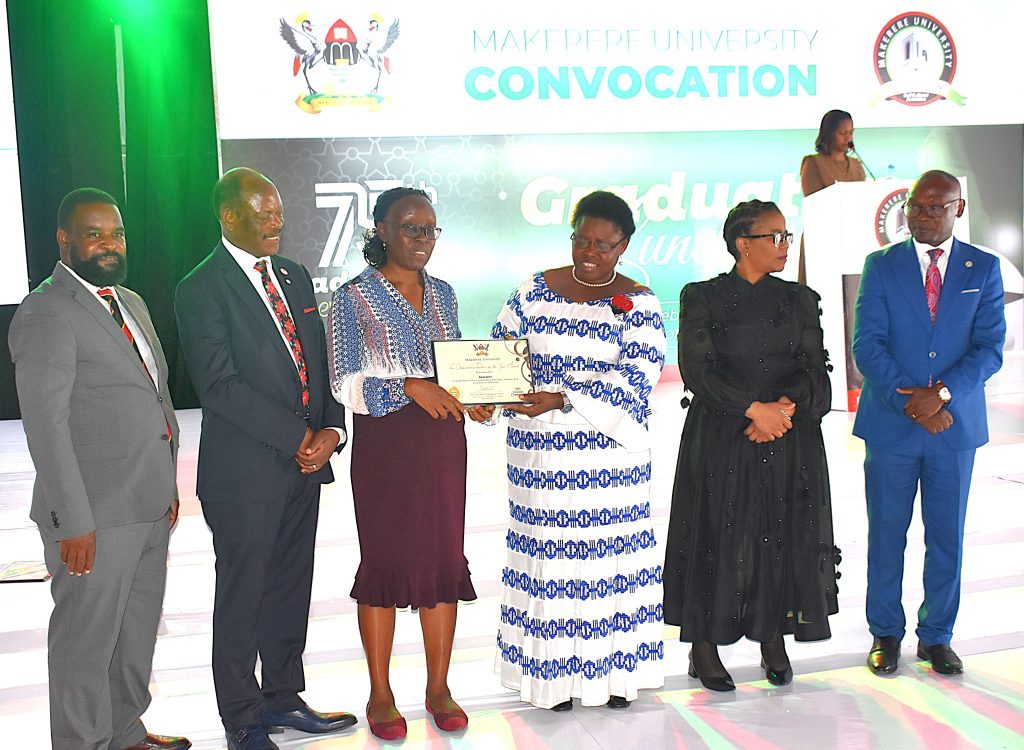
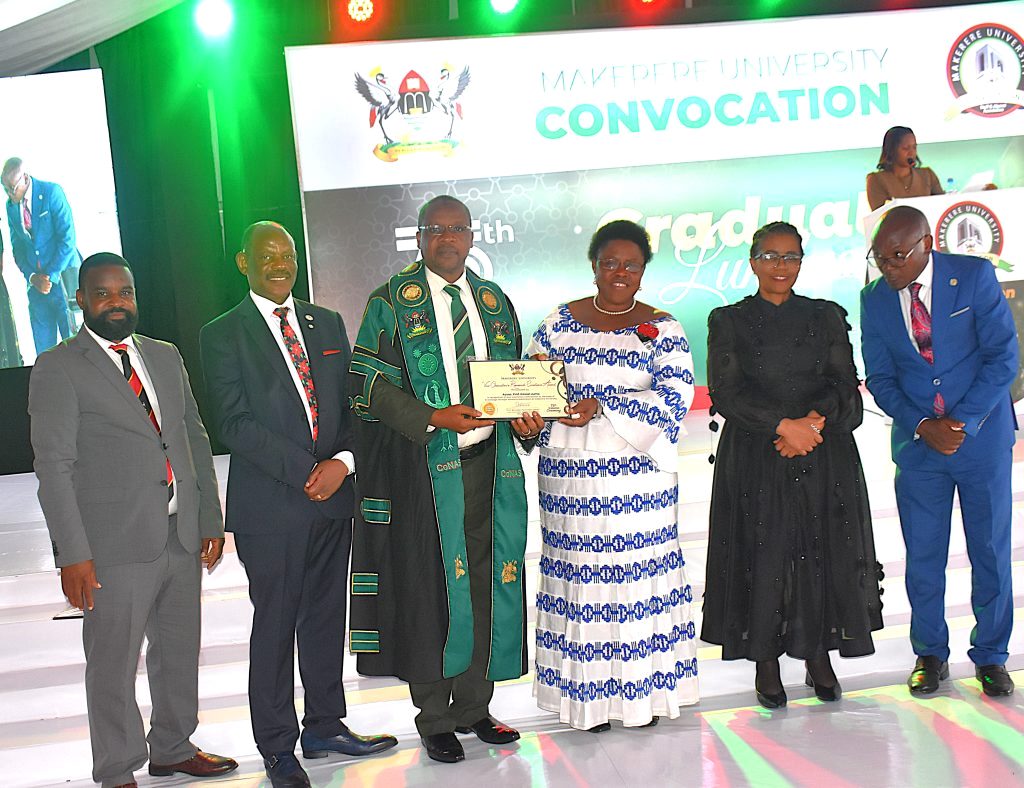
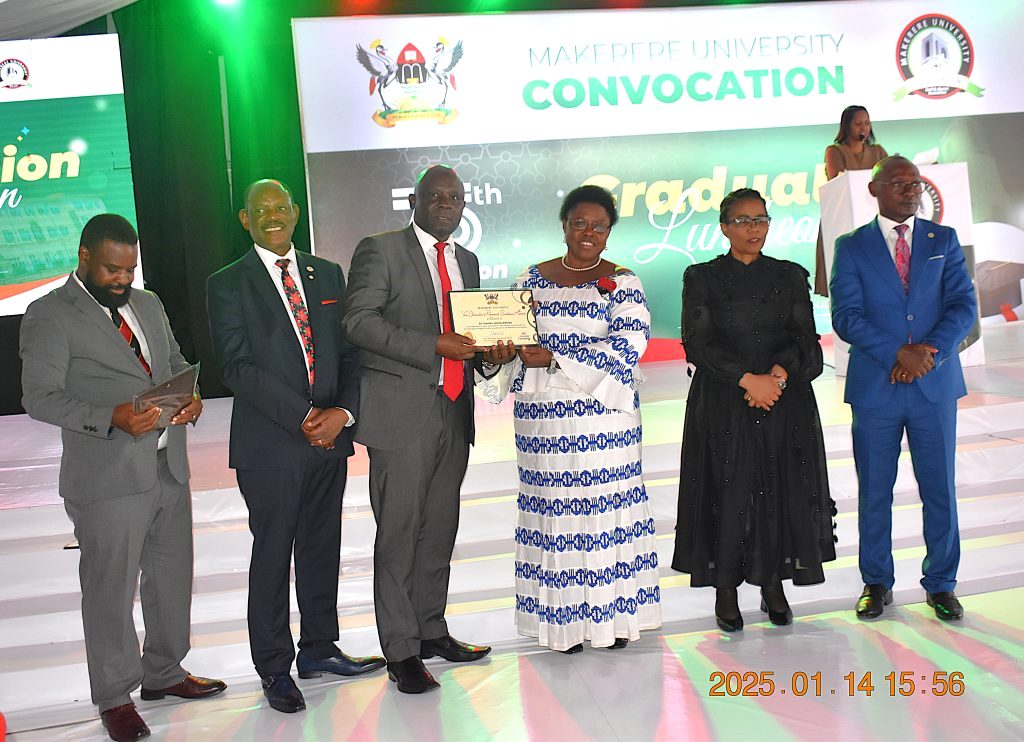
Transcripts and Certificates
Graduates who participated in today’s ceremony can collect their transcripts from their respective colleges.
You may like
-


Simon Mungudit: Mak’s Best Performing Male Science Student & Rising Star in Petroleum Geoscience
-


EU Earmarks Shs19.8bn for 15 Joint PhD Scholarships in Health, Environment Research
-


Call For Applications: MakNCD Masters and PhD Training Opportunities
-


Press Statement: Makerere University Congratulates Former Staff and Students on Successful Election to Public Office
-


Mak Hosts NCHE Competence-Based Education Standards Validation Meeting
-
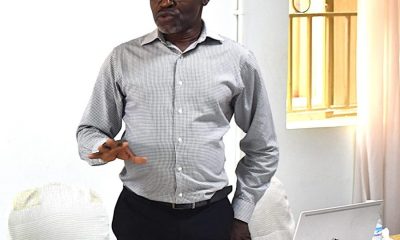

Enhancing Data Quality: NutriFishPlus Research Assistants Retooled Ahead of Baseline Survey
Natural Sciences
Enhancing Data Quality: NutriFishPlus Research Assistants Retooled Ahead of Baseline Survey
Published
2 weeks agoon
January 20, 2026
The NutriFishPlus Project team successfully conducted a one-day capacity-building training for its research assistants, centered on the Monitoring, Evaluation, and Learning (MEL) framework and the household survey tool. Held on 13th January 2026 at Ridar Hotel Seeta in Mukono District, the training aimed to improve data collection, analysis, and learning processes to support evidence-based project implementation and impact assessment.
It was officially opened by Dr. Jackson Efitre, the Principal Investigator, who introduced the research assistants to the overall goal of the NutriFishPlus Project and the guiding principles of the International Development Research Centre (IDRC) Scaling Approach. In his remarks, Dr Efitre emphasized the importance of high-quality data in tracking progress, informing adaptive management, and scaling impact.
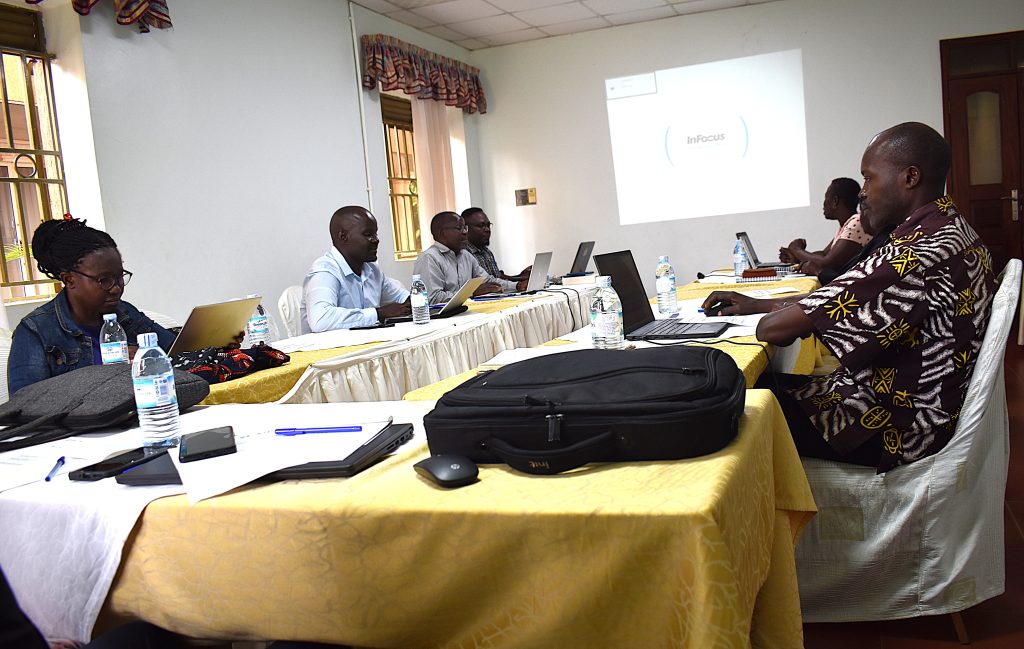
NutriFishPlus builds on the significant achievements of the ground-breaking NutriFish Project (2019–2023), which was funded by IDRC and the Australian Centre for International Agricultural Research (ACIAR) through the Cultivate Africa’s Future Fund Phase II (CultiAF2). Officially launched on 28th October 2025, the two-year and eight-month project seeks to scale proven innovations while deepening nutrition, livelihood, and gender outcomes within small pelagic fisheries.
The project aims to:
- Scale up the adoption of improved and sustainable fish processing technologies, including solar tent driers and raised racks, to reach new fishing communities across Uganda.
- Enhance market access and strengthen supply chain linkages for high-quality fish and fish-based products.
- Empower women and other vulnerable groups while strengthening community resilience through diversified income-generating activities.

Expected Outcomes:
NutriFishPlus is expected to deliver multiple socioeconomic and environmental benefits, including:
- Improved incomes and livelihoods for marginalized fishing communities, particularly women and youth.
- Enhanced health and nutrition outcomes through the development of diversified, market-embedded fish products.
- Establishment of sustainable and replicable fish processing and marketing models across Uganda and the wider East African region.
- Increased participation of women and youth in decision-making and benefit-sharing within the Small Pelagic Fishes (SPFs) value chain.
- Improved socioeconomic conditions and ecosystem health through participatory and scalable approaches.
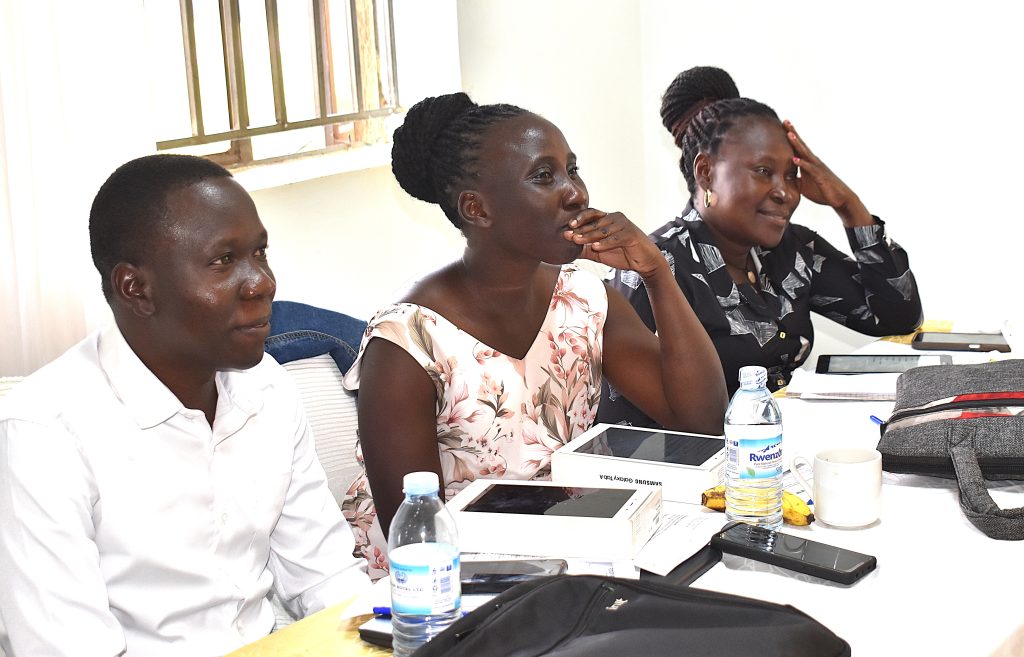
Project Implementation and Partnerships
The project is implemented by the Department of Zoology, Entomology, and Fisheries Sciences at Makerere University, in partnership with Nutreal Ltd and Kati Farms Ltd under a public-private partnership. Project activities will be carried out at five landing sites across Lakes Victoria, Kyoga, and Albert.

The project team comprises:
- Dr. Jackson Efitre (Principal Investigator)
- Dr. Dorothy Nakimbugwe (Co-PI from Nutreal Ltd)
- Ms. Lovin Kobusingye (Co-PI from Kati Farms Ltd)
- Dr. Robinson Odong (Project Officer, Department of Zoology, Entomology and Fisheries Sciences, Makerere University)
- Ms. Juliet Ogubi Nafula (M&E Expert)
- Ms. Nelly Badaru (Gender Specialist)
- Mr. Eugene Swinnerstone Miheso (IT Expert)
- Mr. Maurice Ssebisubi (Kati Farms Ltd)
- Ms. Hasifa Kabejja (Communication Officer)
- Ms. Eve Akongo Ampa (Project Administrator)
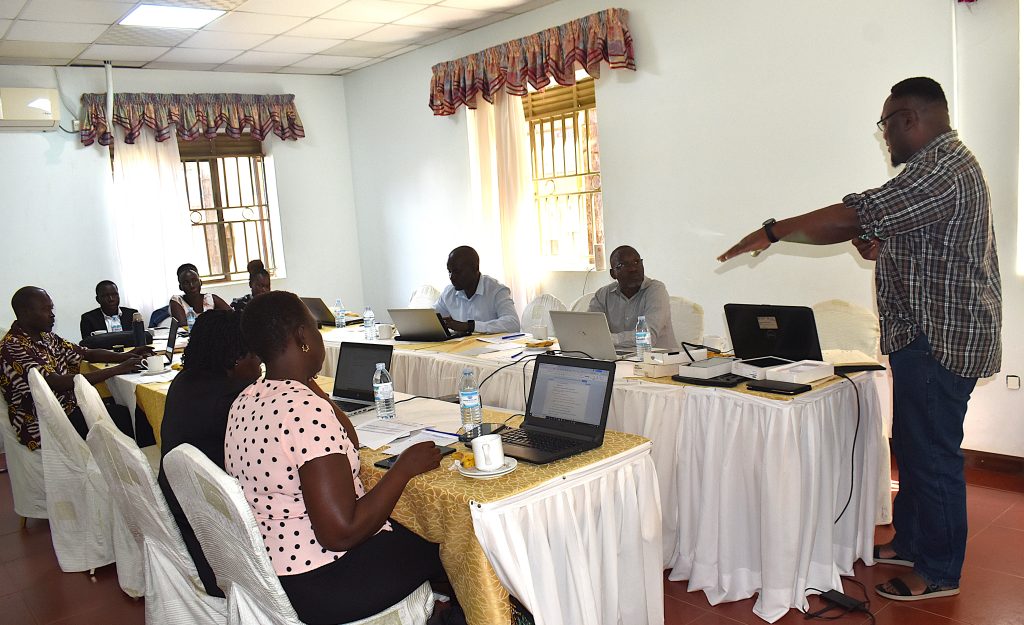
Strengthening MEL and Data Quality
During the training workshop, Ms. Juliet Ogubi Nafula guided the team through the NutriFishPlus MEL framework, highlighting its objectives, indicators, results chain, and reporting requirements. Particular emphasis was placed on the role of high-quality data in facilitating project learning, adaptive management, and accountability to donors and beneficiaries.
A key highlight of the training was a hands-on orientation to the household survey tool, led by Mr. Eugene Swinnerstone Miheso. Participants were taken through the structure of the questionnaire, which covers household demographics, nutrition and dietary diversity, fish consumption, livelihoods, value addition, gender dynamics, and food security. Practical sessions enabled the research assistants to practice administering the tool, apply effective probing techniques, and address common field-level challenges.
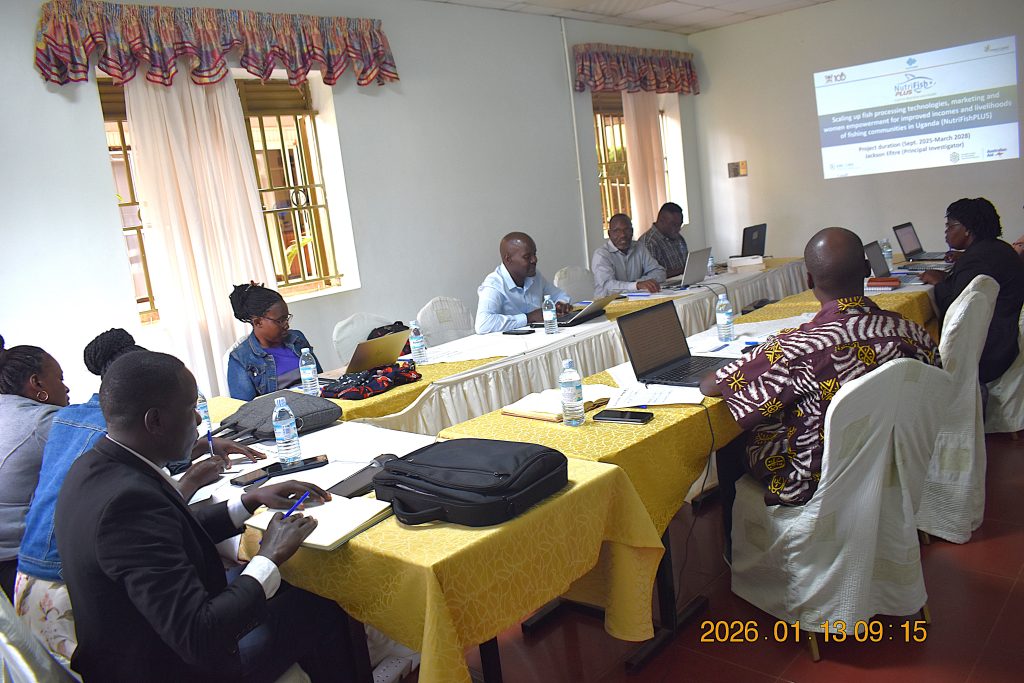
The training underscored critical ethical considerations in household data collection, including informed consent, confidentiality, and respectful engagement with respondents. Data quality assurance measures such as accurate data recording, use of digital data collection platforms, and daily review protocols were discussed to ensure consistency and reliability.
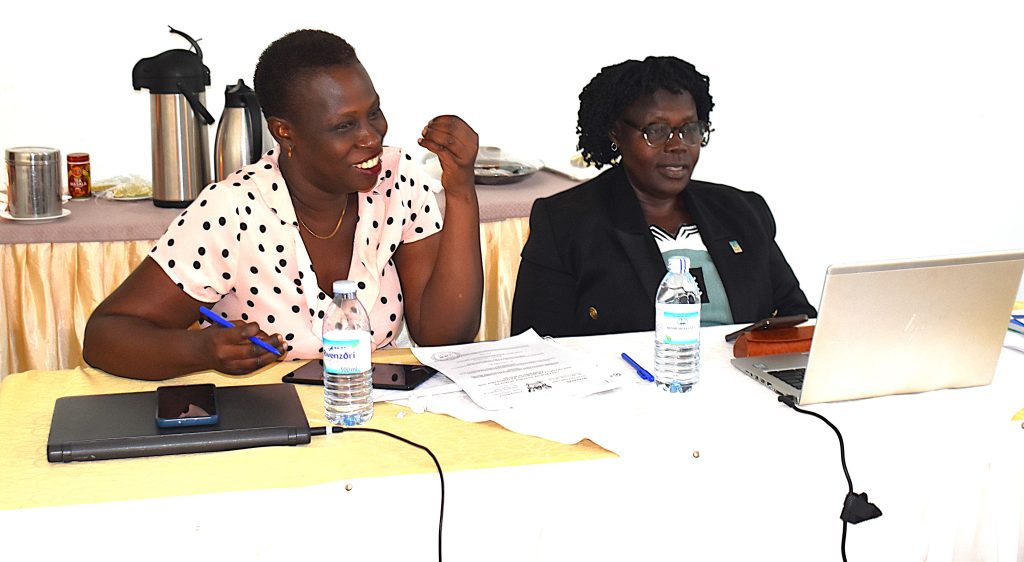
In his closing remarks, Dr. Efitre emphasized that well-trained research assistants are central to generating credible evidence that reflects the lived realities of beneficiary households. “This training is a vital investment in strengthening our MEL system and ensuring that the evidence we generate informs learning, accountability, and improved project outcomes,” he noted.

The participants expressed gratitude for the interactive and practical nature of the training, noting that the sessions significantly enhanced their confidence and readiness for fieldwork. The training concluded with a question-and-answer session and a brief assessment to confirm participants’ understanding of the MEL framework and household survey tool.

Pre-testing of the household survey tool
Following the training, the project team conducted a pre-test of the household survey tool at Kasenyi Landing Site in Entebbe on 19th January 2026, ahead of the baseline survey. The baseline data collection will be carried out across five landing sites: Katosi (Mukono District), Kikondo (Buikwe District), Bangaladesh and Kayago (Amolatar District), and Dei (Pakwach District), spanning Lakes Victoria, Kyoga, and Albert.
Details on the project at: https://news.mak.ac.ug/2025/10/mak-conas-launches-nutrifishplus-project/
Natural Sciences
Dr Oruru Bosco Appointed Acting Head of the Department of Physics
Published
4 weeks agoon
January 6, 2026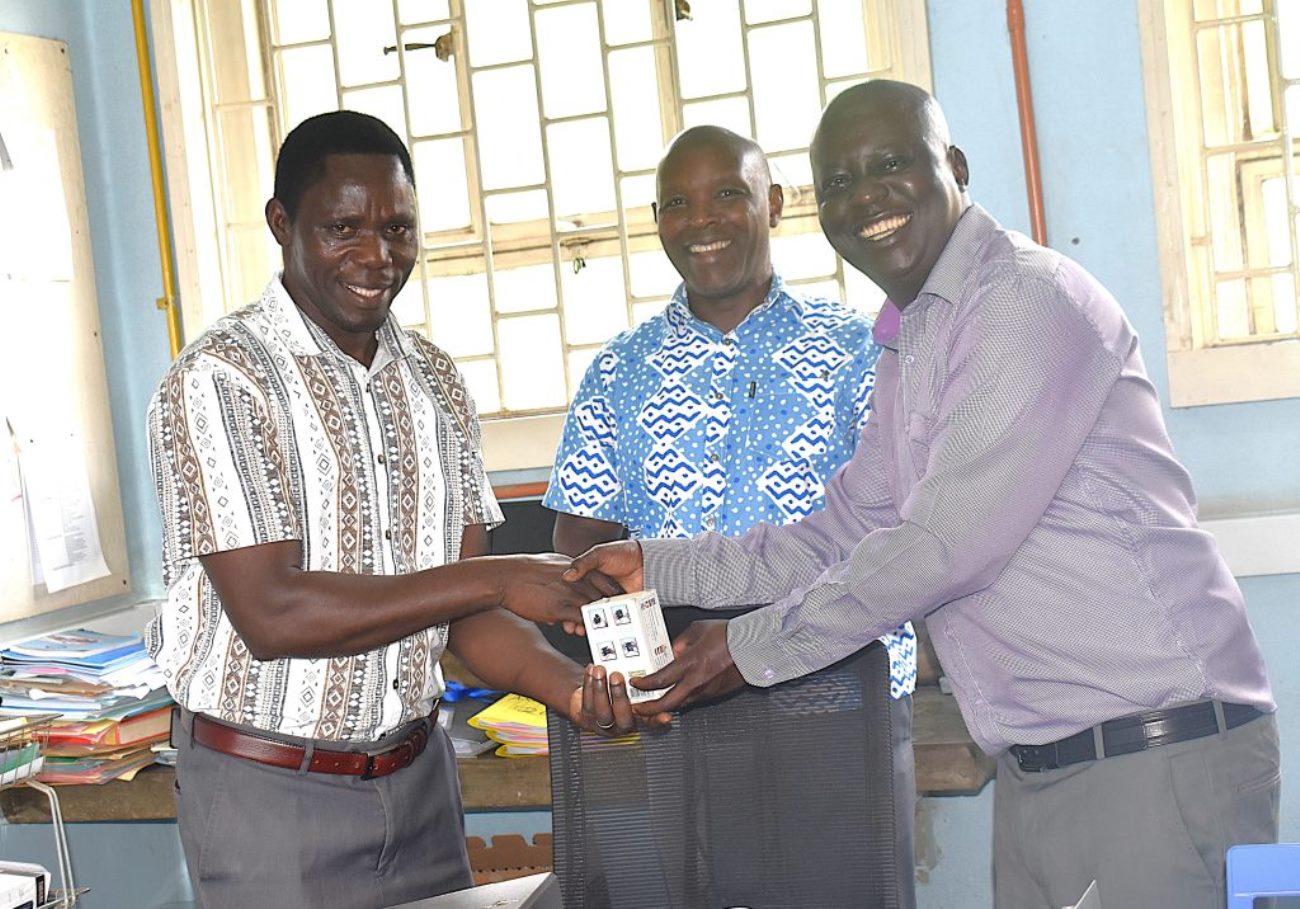
Dr Oruru Bosco has been appointed Acting Head of the Department of Physics at the College of Natural Sciences (CoNAS), Makerere University effective 1st January 2026. Dr Oruru takes on from Dr Okello Denis who has served in the same position since January 2022. He becomes the 10th Head of Department since its establishment. His predecessors include Prof. David Thomson, Prof. John Odeke Ilukor, Prof. Eldad J.K. Banda, Prof. Ezra K.S. Mugambe, Prof. Yusto Kaahwa, Prof. Ezra M. Twesigomwe, Prof. Florence Mutonyi D’ujanga, Prof. Winston Tumps Ireeta, and Dr. Denis Okello.
Dr. Oruru holds a PhD in Physics from the University of the Free State, South Africa, an MSc in Physics from the University of the Free State, a BSc in Astrophysics and Space Science from the University of Cape Town, a BSc in Education (Physics and Mathematics) from Mbarara University of Science and Technology, a Postgraduate Diploma in Public Administration and Management from Uganda Management Institute, and a Diploma in Secondary Education (Physics and Chemistry) from the Institute of Teacher Education, Kyambogo.
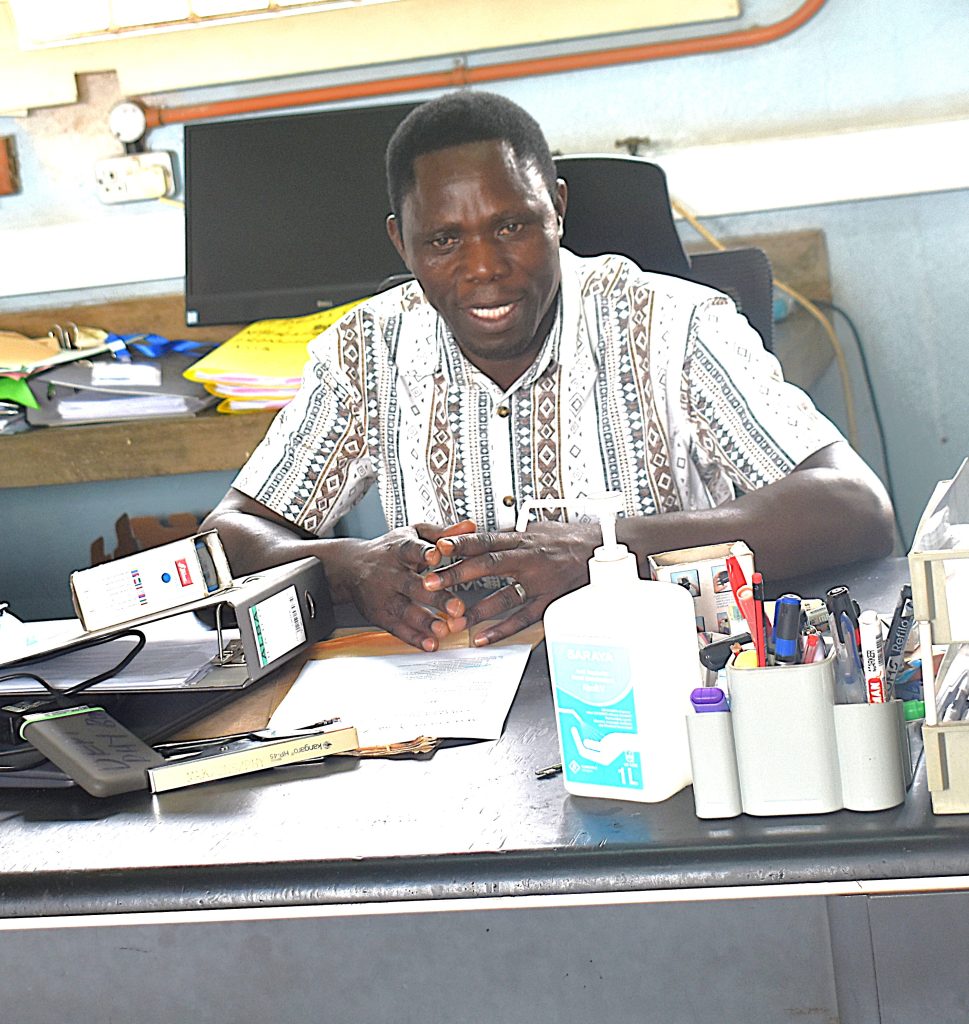
He has served the Department in various capacities as a Lecturer, Senior Lecturer, Graduate Supervisors Trainer, and Secretary of the Departmental Research and Teaching Programmes Committee. Dr. Oruru has supervised and examined several PhD, MSc, and BSc students at Makerere and other institutions, including Kyambogo University, Mbarara University of Science and Technology, the South African Institute of Physics, and the University of the Free State. His research interests include accretion onto magnetized compact objects (e.g., X-ray binaries and cataclysmic variables), exotic phenomena such as gamma-ray bursts, supernovae explosions, and active galactic nuclei, African cultural astronomy, and radiation physics.
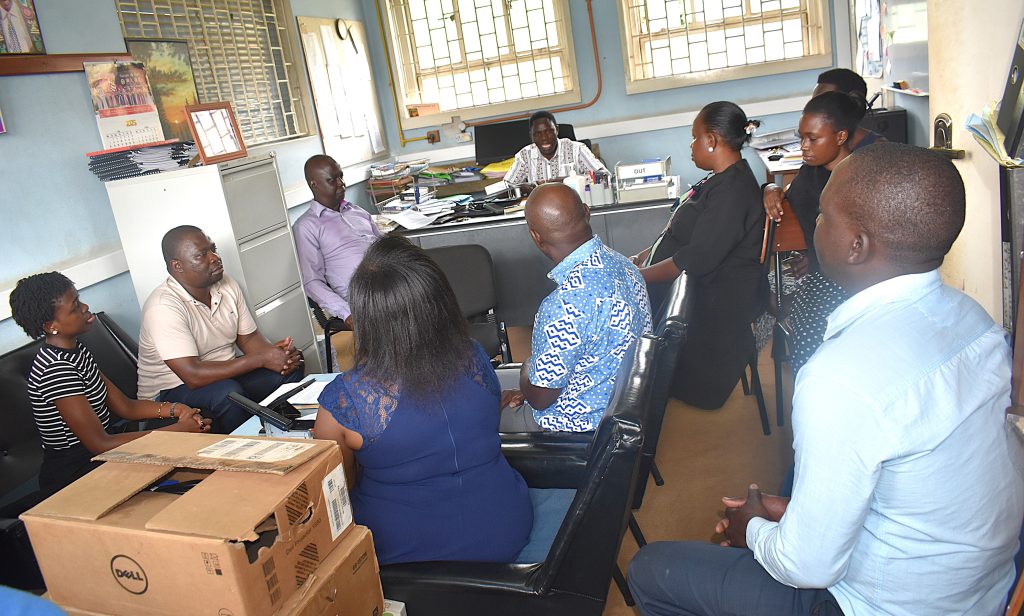
At the handover ceremony held today, 6th January 2026, Dr. Denis Okello congratulated Dr. Oruru on his appointment and expressed gratitude to the College and University administration for the support accorded to him during his tenure. He also thanked the department staff for their cooperation and commitment. “The support I received enabled me to serve successfully and build upon the achievements of my predecessors. I leave the Department in a much improved state, with well-established infrastructure, including a lecture theatre, classrooms, teaching, research, and ICT laboratories, as well as a departmental library stocked with textbooks relevant to our programmes.”
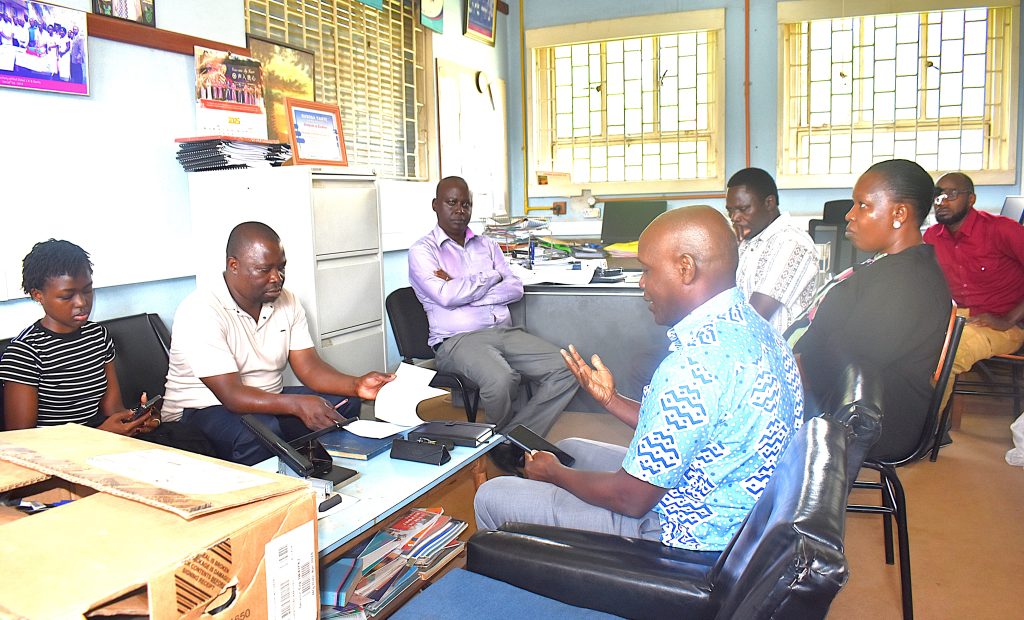
During his tenure, Dr. Okello oversaw the review of the Bachelor of Science programmes (BSCI and BSCX) to align with the competence-based curriculum. The Department also acquired 55 computers through government funding, in addition to three iPads donated through the College. Renovations were carried out on the interior and exterior of the Department. Staffing improved, with 17 teaching staff currently in place out of the approved 27 positions. Recruitment efforts continue to fill the vacant positions.
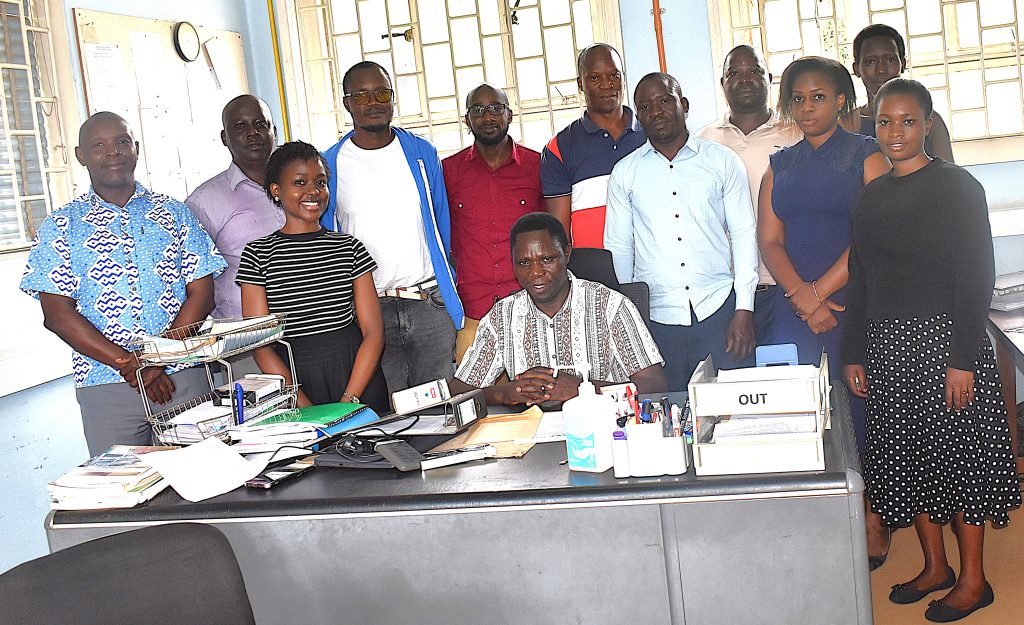
Dr Okello appealed to staff to continue working together to further strengthen the department, and pledged support to the new head.
In his remarks, Dr Oruru thanked the staff and university management for entrusting him with the leadership of the Department. ““I am delighted to work alongside a team of dedicated professionals who understand their responsibilities and remain focused on our shared goals. I step into this position not merely as a leader, but as a representative of an exceptional team. With the guidance and support of my predecessors, I am confident that we will continue to uphold and build upon the department’s tradition of excellence.
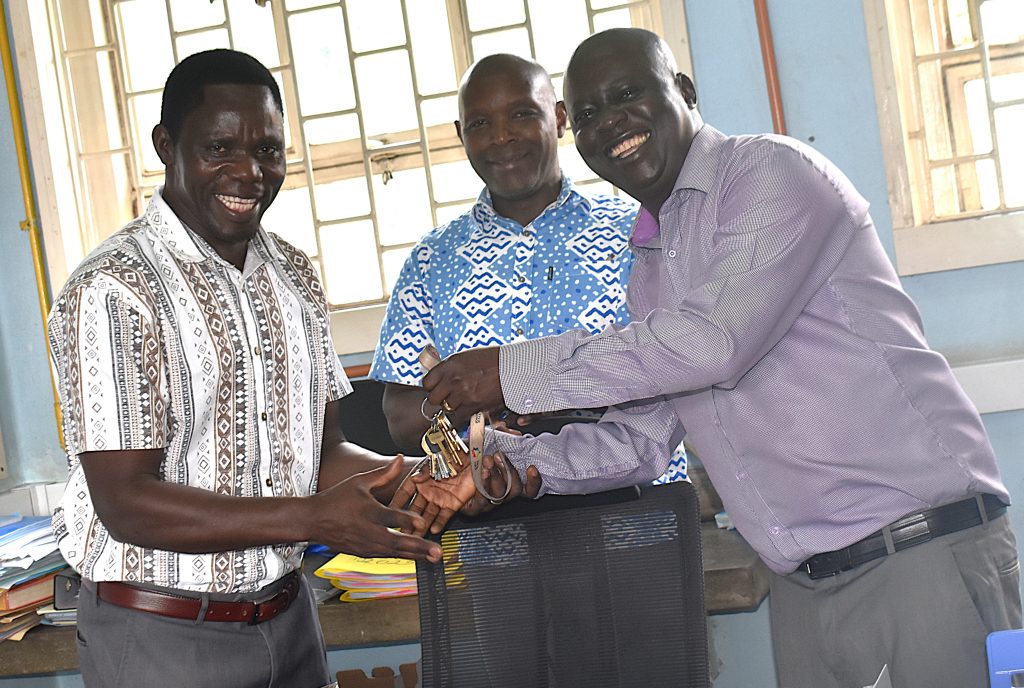
The Dean, School of Physical Sciences, Dr Michael Owor commended both outgoing and incoming Heads for their commitment to the growth and success of the Department.
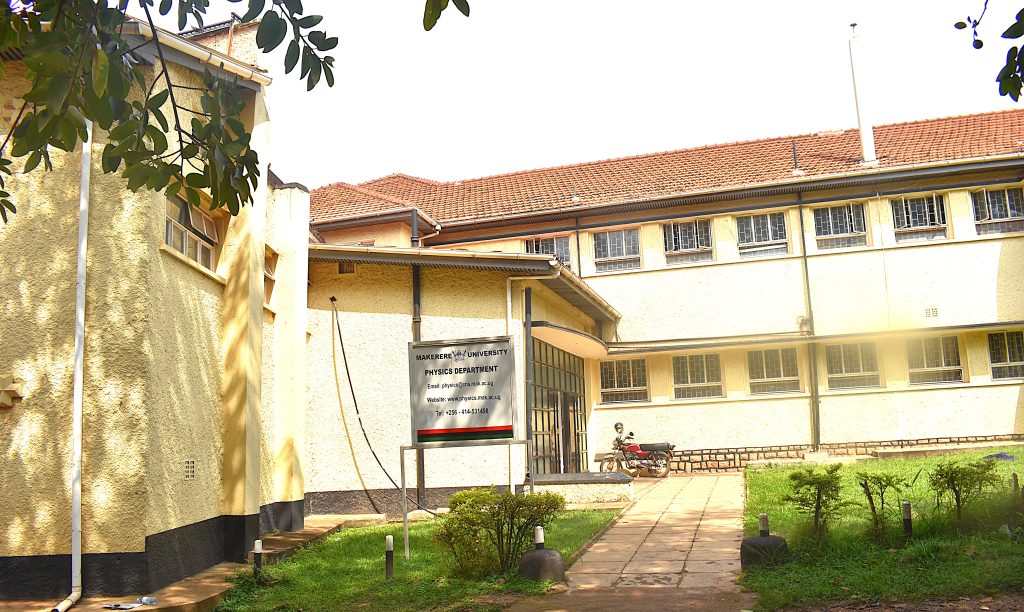
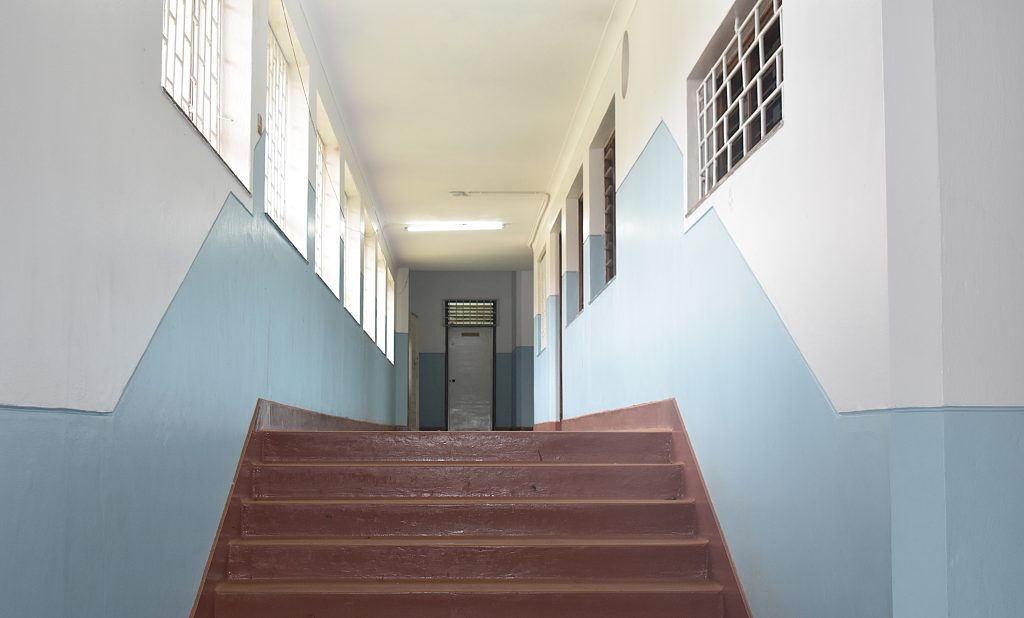
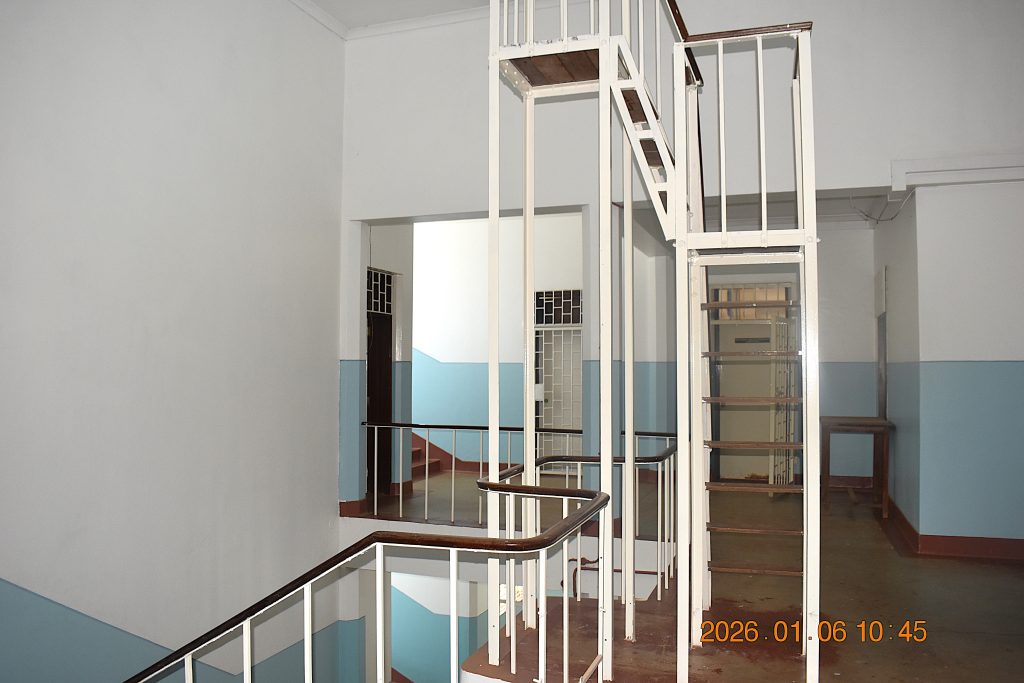
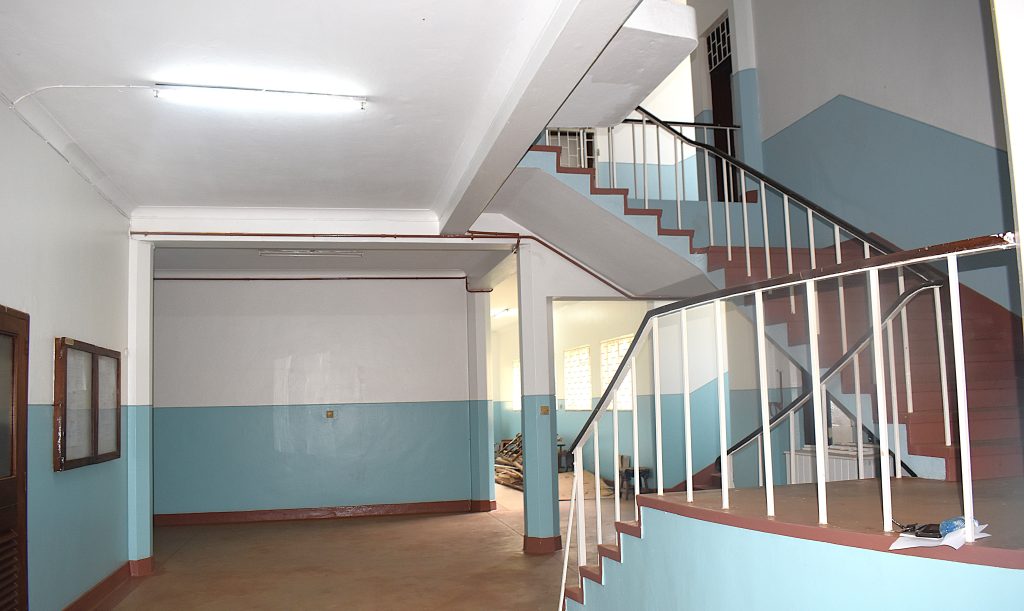
Natural Sciences
Jinja Fish Festival: Mak Recognized for its outstanding contribution to the Development of the Fisheries Sector
Published
2 months agoon
December 8, 2025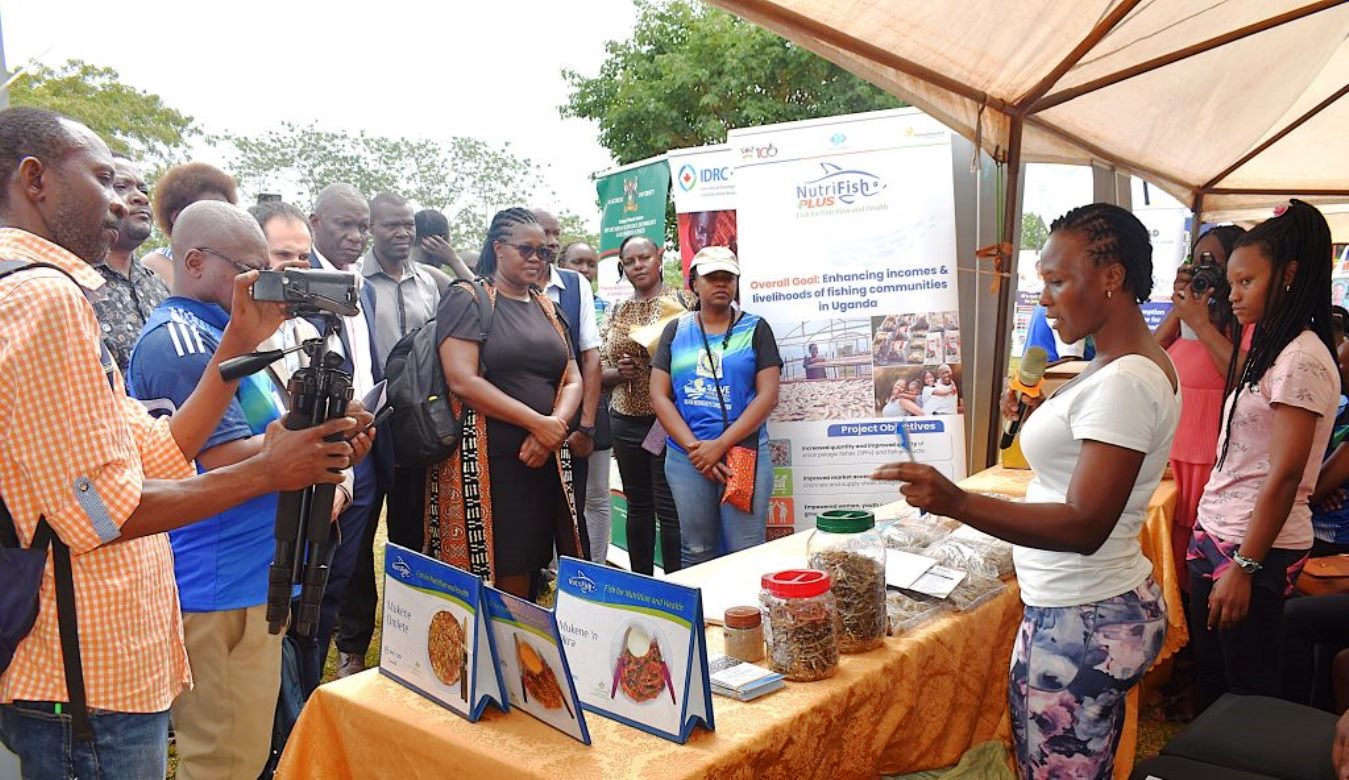
Makerere University, through the College of Natural Sciences (CoNAS), has been recognized for its outstanding contribution to the development of the fisheries sector in Uganda. The award was presented during the Sustainable Fisheries, Aquaculture, and Environmental Awards Ceremony at the 7th edition of the Jinja Fish Festival, held on 6th–7th December 2025 at Across the Nile Resort, along the banks of the River Nile in Njeru Municipality.
Renowned for showcasing diverse fish cuisines and cultural exhibitions, this year’s festival aimed to promote knowledge exchange, raise awareness, and highlight recent developments around Lake Victoria.
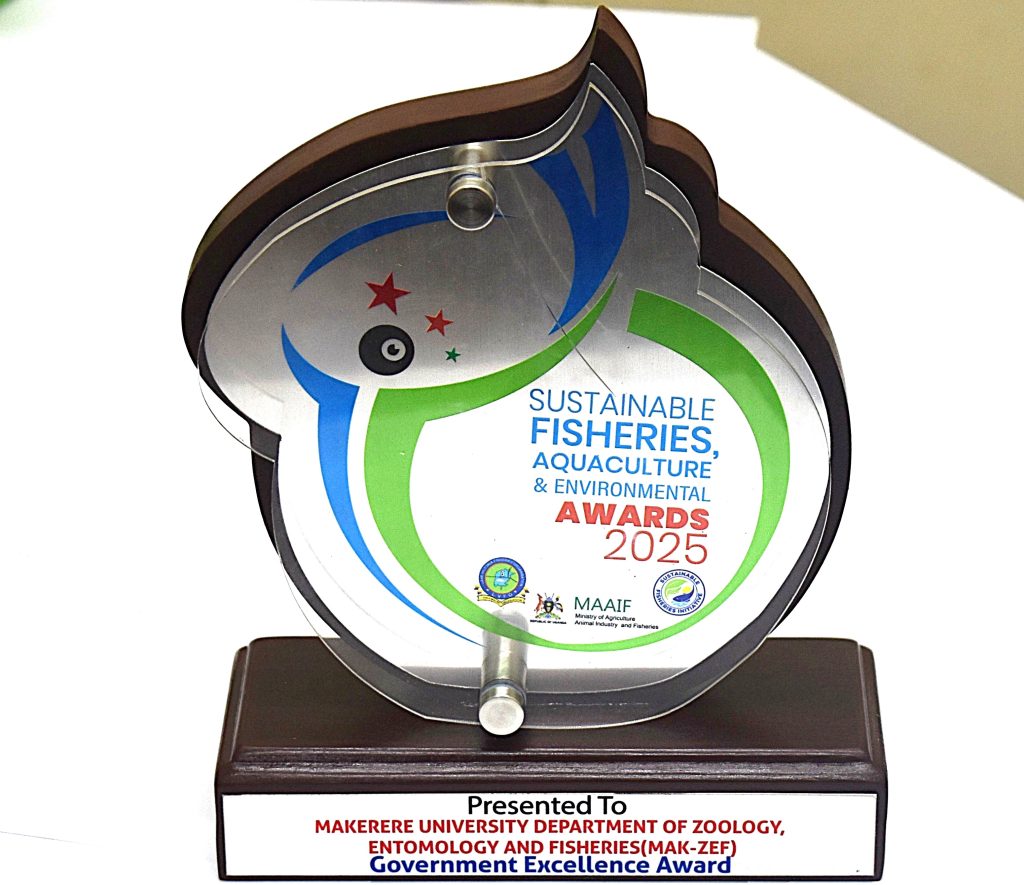
Launched in 2018, the Jinja Fish Festival has become a key platform for the public and stakeholders to learn about sustainable fisheries and the vital role of fish in livelihoods and nutrition. It also provides an avenue for fisheries stakeholders to deliberate on strategies to improve and sustain the sector.
The event includes the Lake Victoria Marathon, Nalubaale boat rowing competitions, a high-level fisheries forum, workshops, and exhibitions. It is organized by the Lake Victoria Fisheries Organization (LVFO) in partnership with the Directorate of Fisheries Resources, Sustainable Fisheries Initiative (SFI), Uganda Fish Processors and Exporters Association (UFPEA), and the International Fish and National Organizing Committee. It is funded by GIZ–SAF Project, the Food and Agriculture Organization (FAO), the International Fund for Agricultural Development (IFAD), and Enabel.
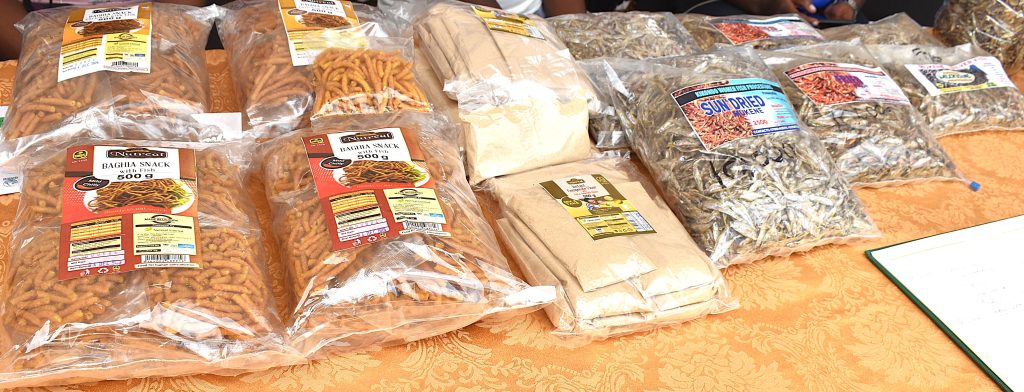
National Fisheries and Aquaculture Forum
A key highlight of the festival was the National Fisheries and Aquaculture Forum, themed “Promoting Sustainable Fisheries and Aquaculture through Ethical and Inclusive Blue Economy Practices.” The forum featured panel discussions on:
- Aligning Uganda’s Blue Economy with global and regional fisheries management frameworks.
- Adoption of climate-smart technologies in fisheries and aquaculture.
- Integration of business strategies and human rights principles into the fisheries and aquaculture value chain.
- Sustainable development of the fisheries and aquaculture sector.
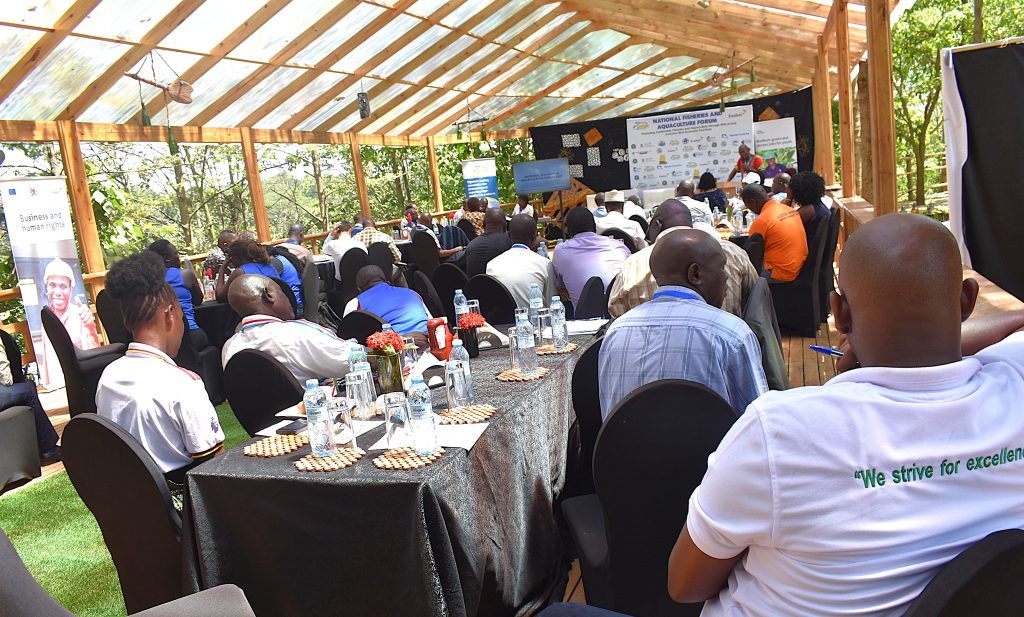
Participants emphasized the importance of strengthening value chain governance, scaling up innovations, and aligning initiatives with youth employment opportunities.
Delivering the keynote address, Mr. Richard Ogutu-Ohwayo, Coordinator at African Lakes Network and Independent Researcher, highlighted the urgent need to address “dirty fish” corruption, improve fisheries resource management through effective policies, and increase human resource capacity within the sector. Dr. Odongokara Konstantine, a Research and Policy Expert, emphasized domesticating international policies into Uganda’s aquaculture practices and building stakeholders’ capacity to access regional and global opportunities.
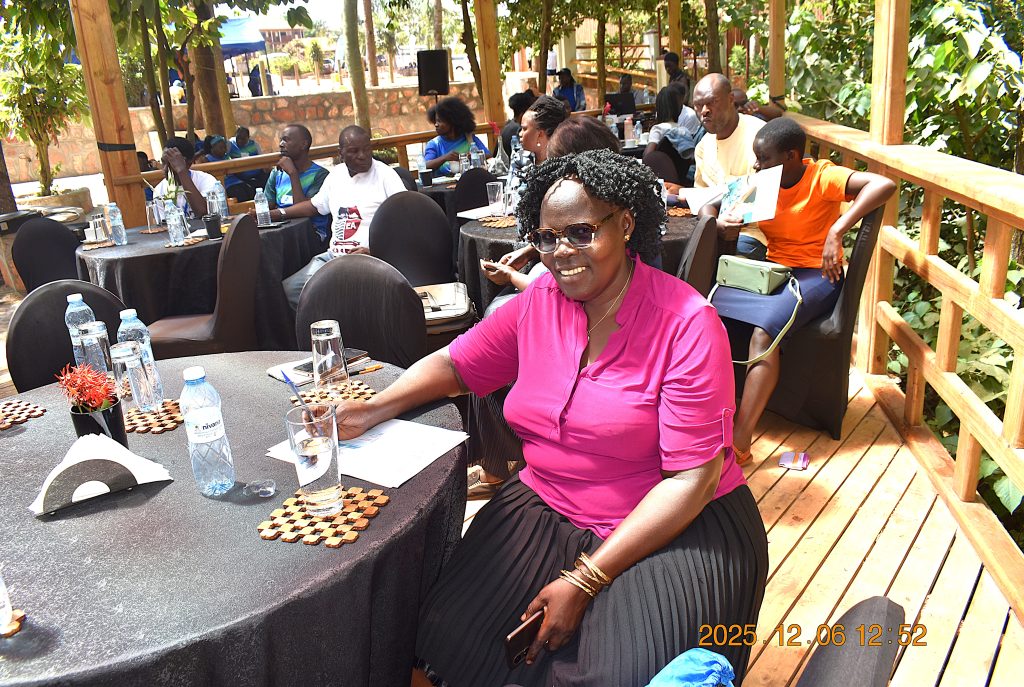
NutriFishPlus Project Participation in the Festival
The NutriFishPlus Project team, along with students from CoNAS participated in the 7th edition of the Jinja Fish Festival on 6th and 7th December 2025. Led by Ms. Nelly Badaru, Gender Expert on the Project and Ms. Juliet Ogubi Nafula, PhD student in the Department of Zoology, Entomology, and Fisheries Sciences at CoNAS, the team showcased products developed under the project and educated participants on the nutritional benefits of small pelagic fishes.
In its first phase, titled NutriFish, Makerere University researchers, led by Dr. Jackson Efitre, in collaboration with the National Fisheries Resources Research Institute (NaFIRRI – NARO), NUTREAL Limited, and McGill University, Canada, developed five high-value nutritious products, including baby food, sauce, maize meal, snacks, and seasoning, using Mukene (silverfish). The team also published a Mukene recipe book, containing 16 recipes rich in protein, calcium, zinc, and iron.
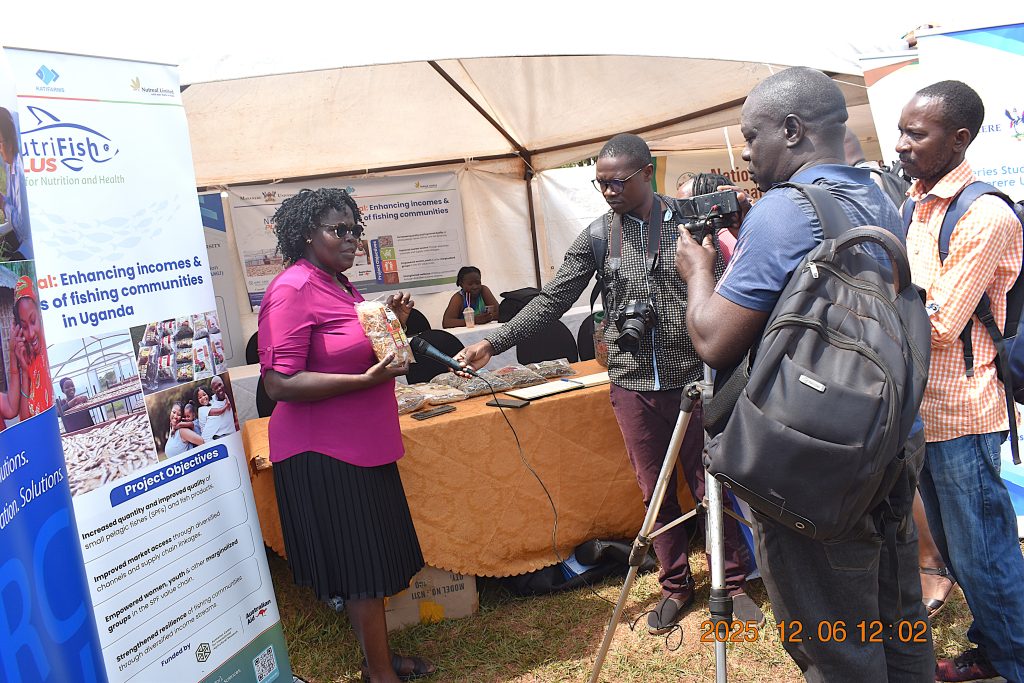
Through the project, fishers gained access to loans for purchasing boats and fish containers that improve hygiene and product quality. Two enterprise fishing groups, with over 70 boats, were established to ensure consistent supply and standards. Researchers also developed the eCAS system, an application for tracking fish catches. By September 2022, 8,960 catch records had been transmitted through the system, which is now used by over 200 stakeholders, including the Directorate of Fisheries Resources and the Fisheries Protection Unit, helping prevent overfishing.

Other achievements registered under the project included the development of solar tent driers – greenhouse-like structures that reduce the risk of contamination and provide clean and efficient storage and drying, especially during the wet season subsequently reducing post-harvest losses. The project conducted awareness training for 326 people (200 women) to reduce gender inequalities. As a result, domestic violence dropped by 30%, and the number of women in the fish value chain increased. The project also trained eight Graduate students, who have gained valuable skills and knowledge thus boosting critical human resource needs in the fisheries sector.
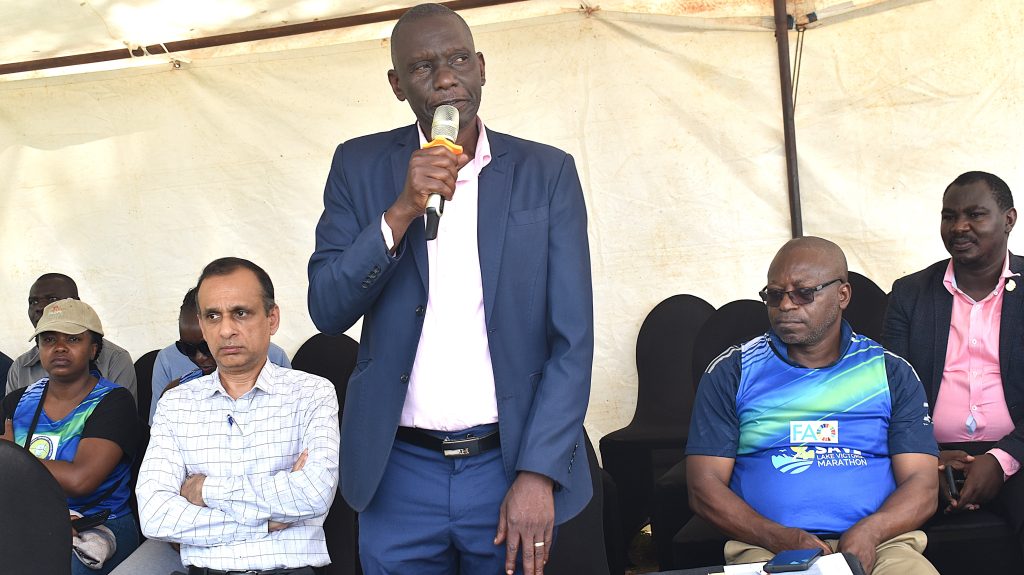
Other exhibitors at the festival included (NaFIRRI – NARO), FAO, INNOECOFOOD Project at Makerere University, the International University of East Africa, Busitema University, SEETA University (Science, Environment, Engineering, Technology, and Agriculture), Yalelo Uganda, and Preventive Care International, all showcasing emerging technologies and innovations in fisheries.
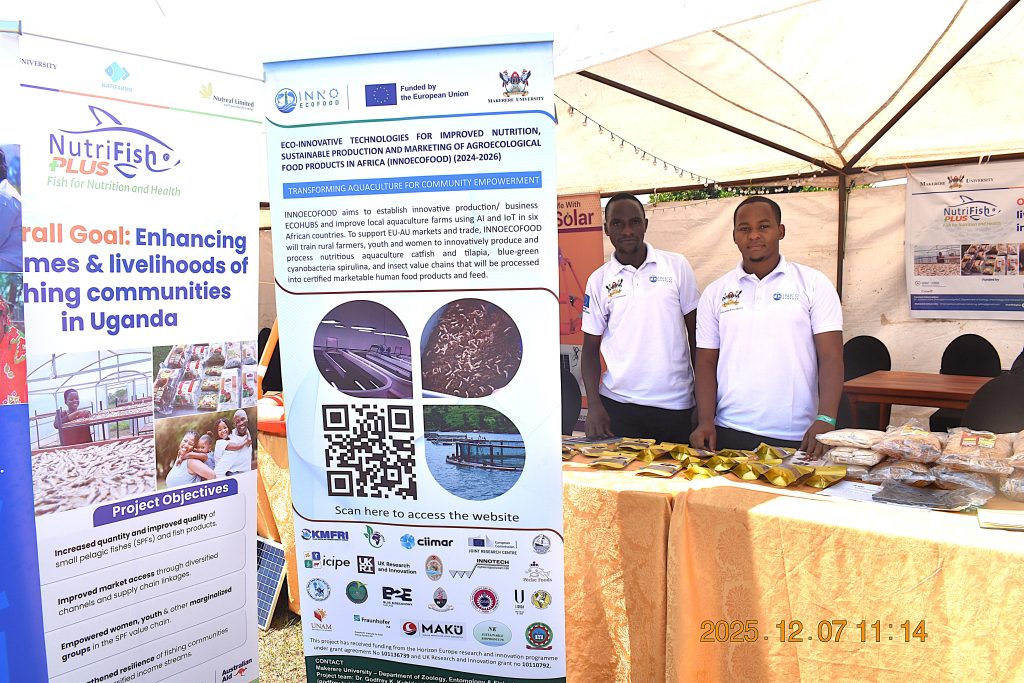
NutriFishPlus Phase II
Funded by the International Development Research Centre (IDRC) and the Australian Centre for International Agricultural Research (ACIAR) under CultiAF2, the NutriFishPlus Project aims to scale up Phase I activities to further enhance incomes and livelihoods of Uganda’s fishing communities.
Launched on 28th October 2025, the 32-month project will run until March 2028. Its objectives include:
- Scaling up sustainable fishing technologies, including solar tent driers and raised racks, to reach new communities.
- Strengthening market access and supply chain linkages for high-quality fish and fish-based products.
- Empowering women and vulnerable groups through diversified income-generating activities.

Implemented by the Department of Zoology, Entomology, and Fisheries Sciences at Makerere University, in collaboration with Nutreal Ltd and Kati Farms Ltd, the project is led by Dr. Jackson Efitre (Principal Investigator).
Expected outcomes include:
- Improved livelihoods and incomes for marginalized fishing groups, especially women and youth.
- Better health and nutrition through diversified, market-driven fish products.
- Sustainable fish processing and marketing models replicable across Uganda and the East African region.
- Enhanced participation of women and youth in decision-making and benefit-sharing within the Small Pelagic Fishes (SPFs) value chain.
- Strengthened community resilience and ecosystem health through participatory approaches.
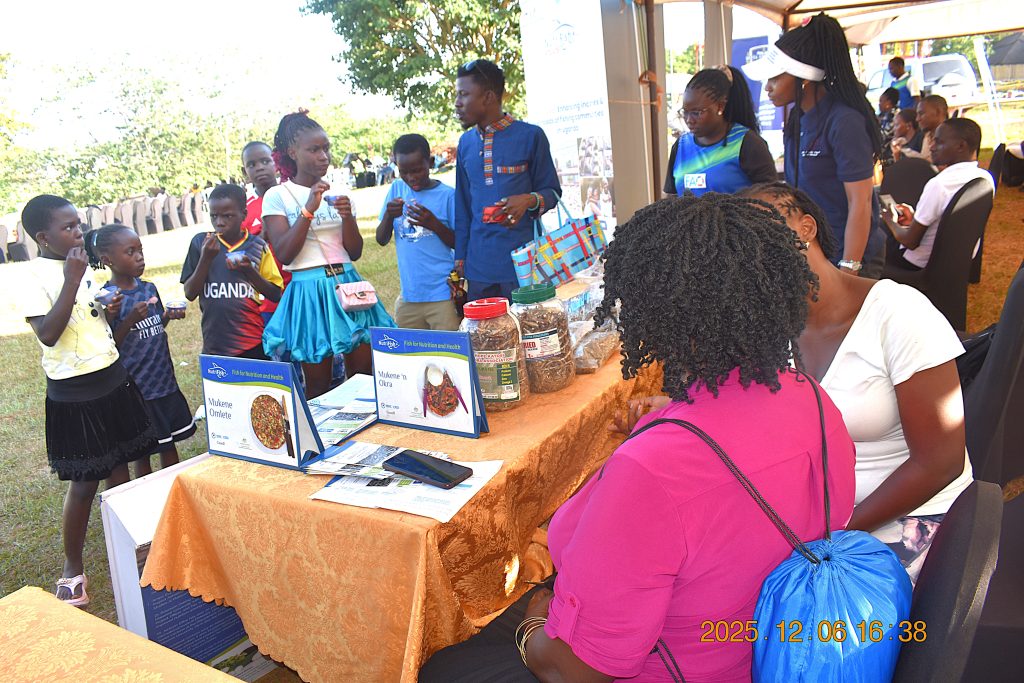
Project activities will be conducted at five landing sites around Lakes Victoria, Kyoga, and Albert: Katosi and Kikondo (Mukono and Buikwe districts), Bangaladesh and Kayago (Amolatar District), and Dei (Pakwach District).
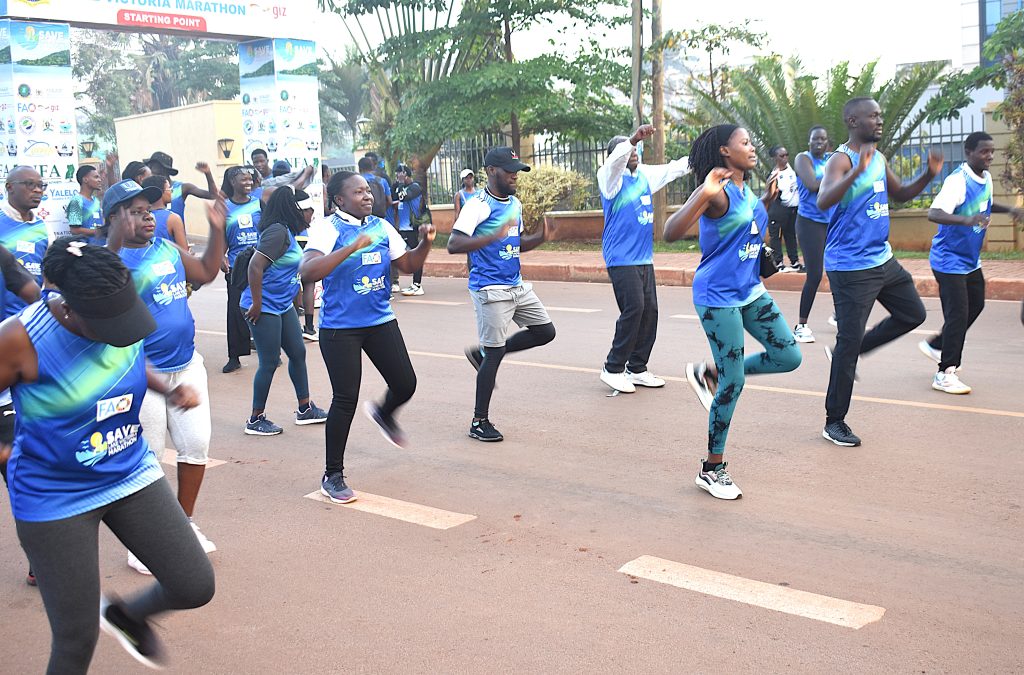
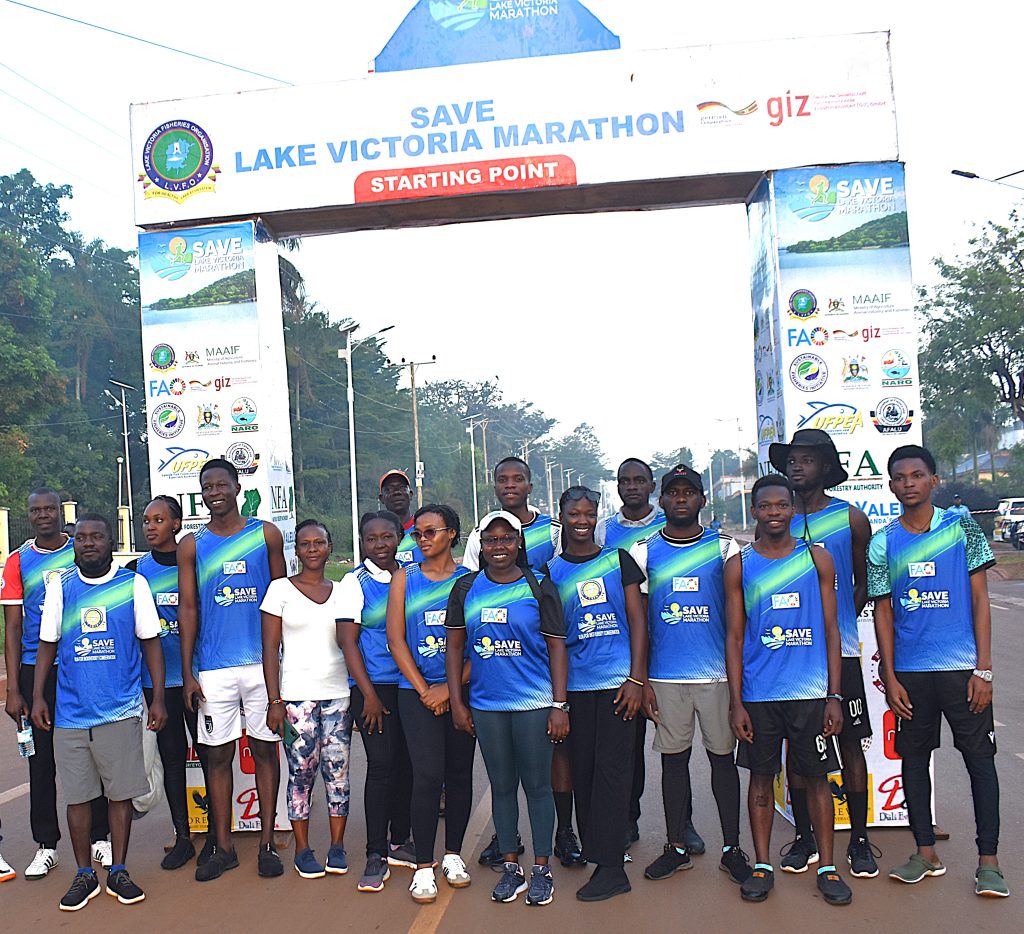
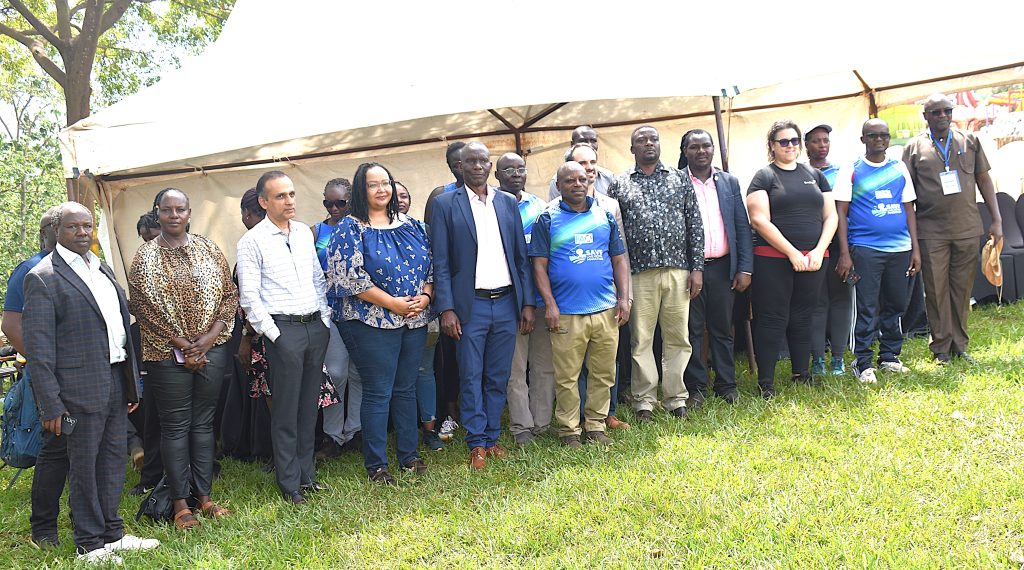
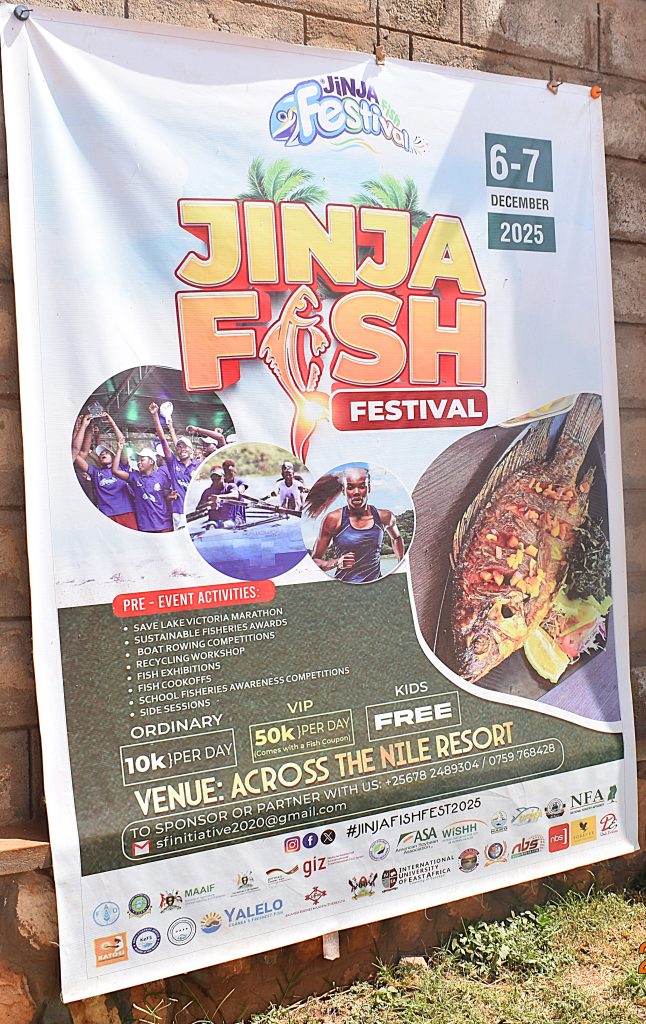
Trending
-

 General1 week ago
General1 week agoPress Statement: Makerere University Congratulates Former Staff and Students on Successful Election to Public Office
-

 General1 week ago
General1 week agoPress Statement: Makerere 76th Graduation Ceremony
-

 General1 week ago
General1 week agoRe-Advert for the Position of the Second Deputy Vice Chancellor
-

 Health2 days ago
Health2 days agoCall For Applications: MakNCD Masters and PhD Training Opportunities
-

 General2 weeks ago
General2 weeks agoMak Hosts NCHE Competence-Based Education Standards Validation Meeting
